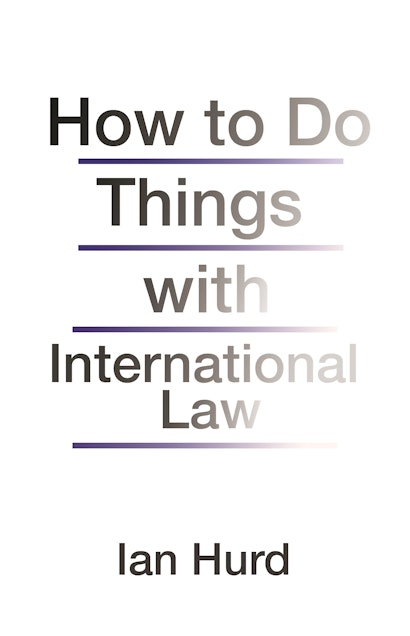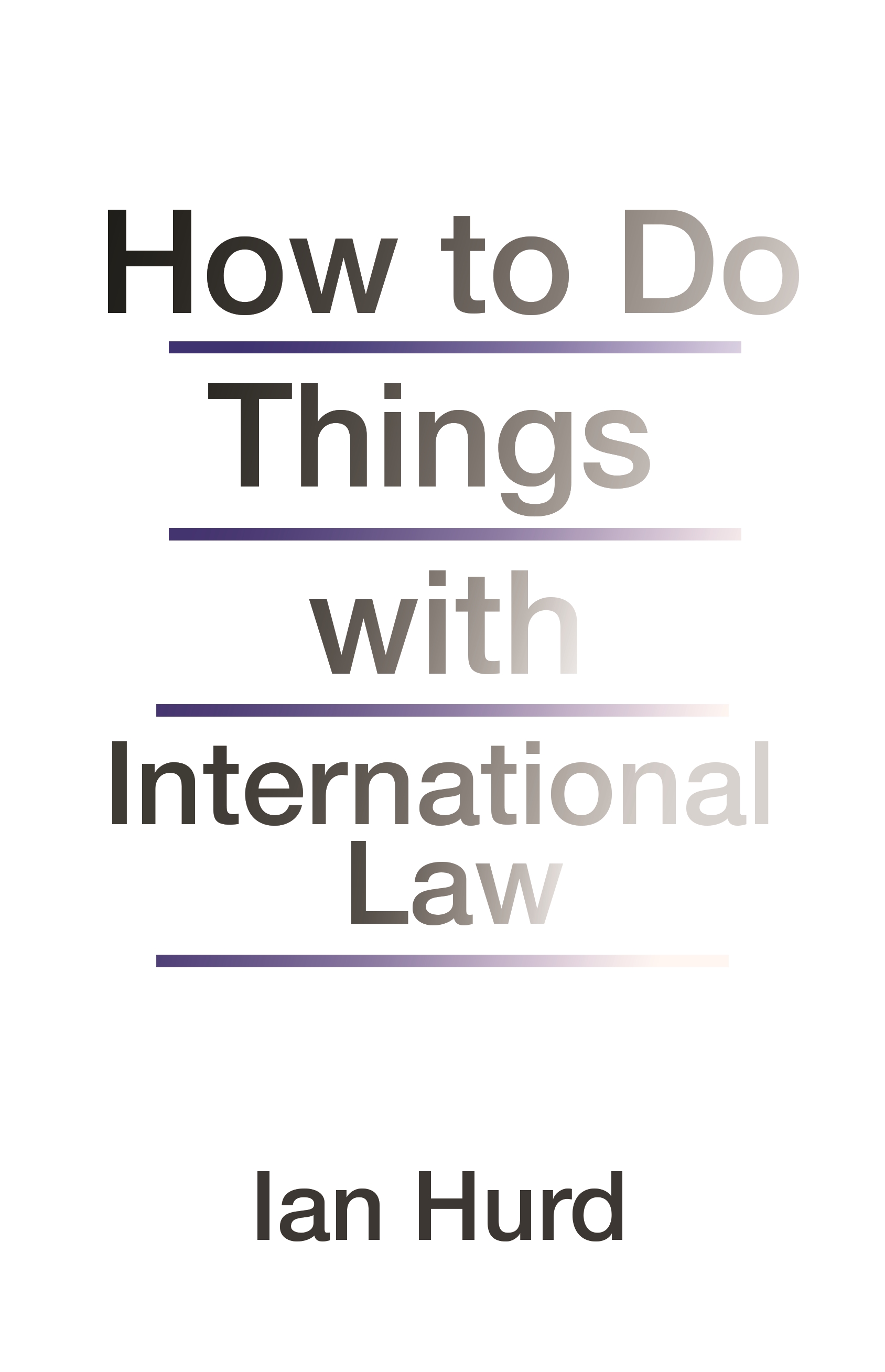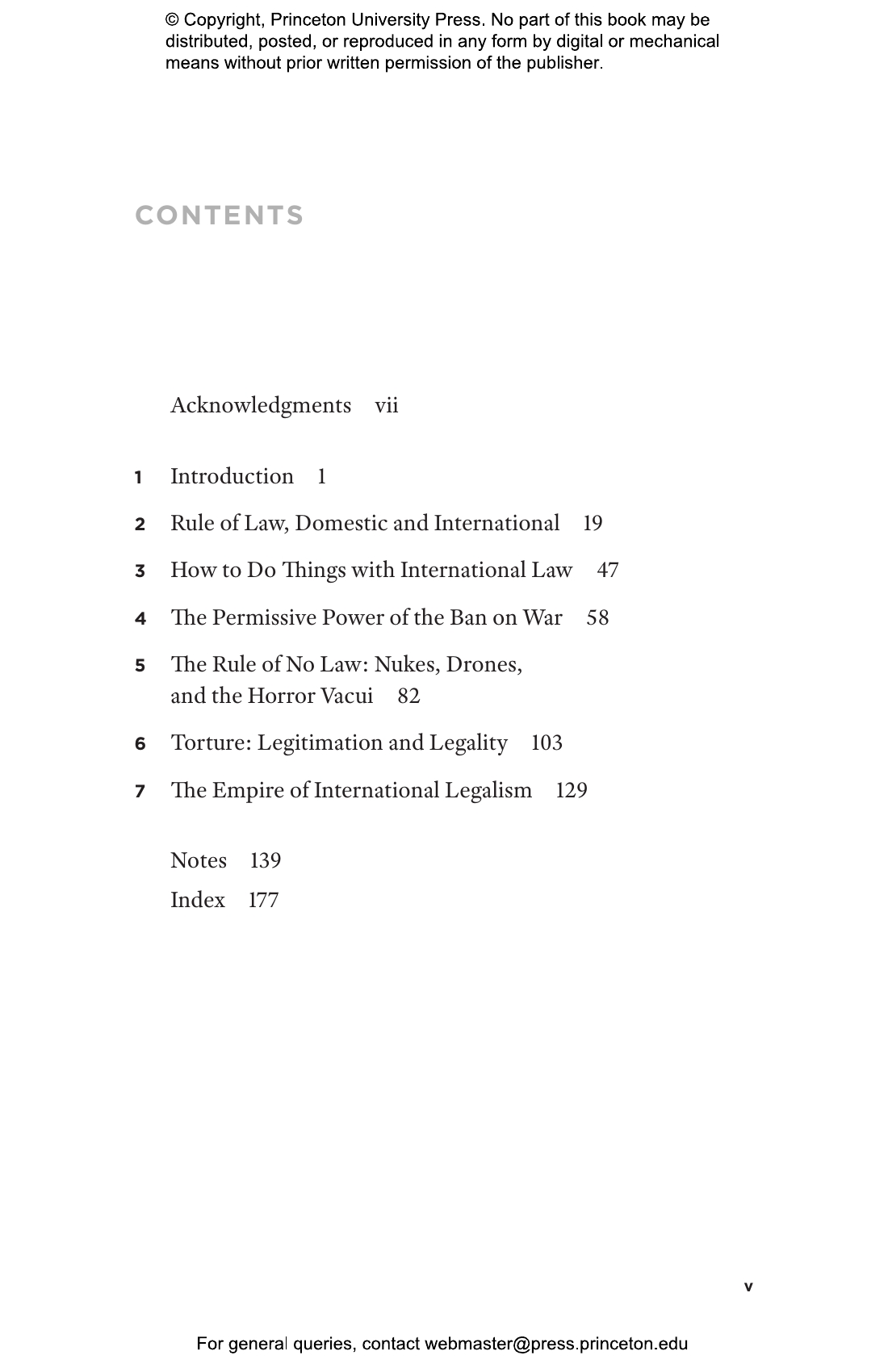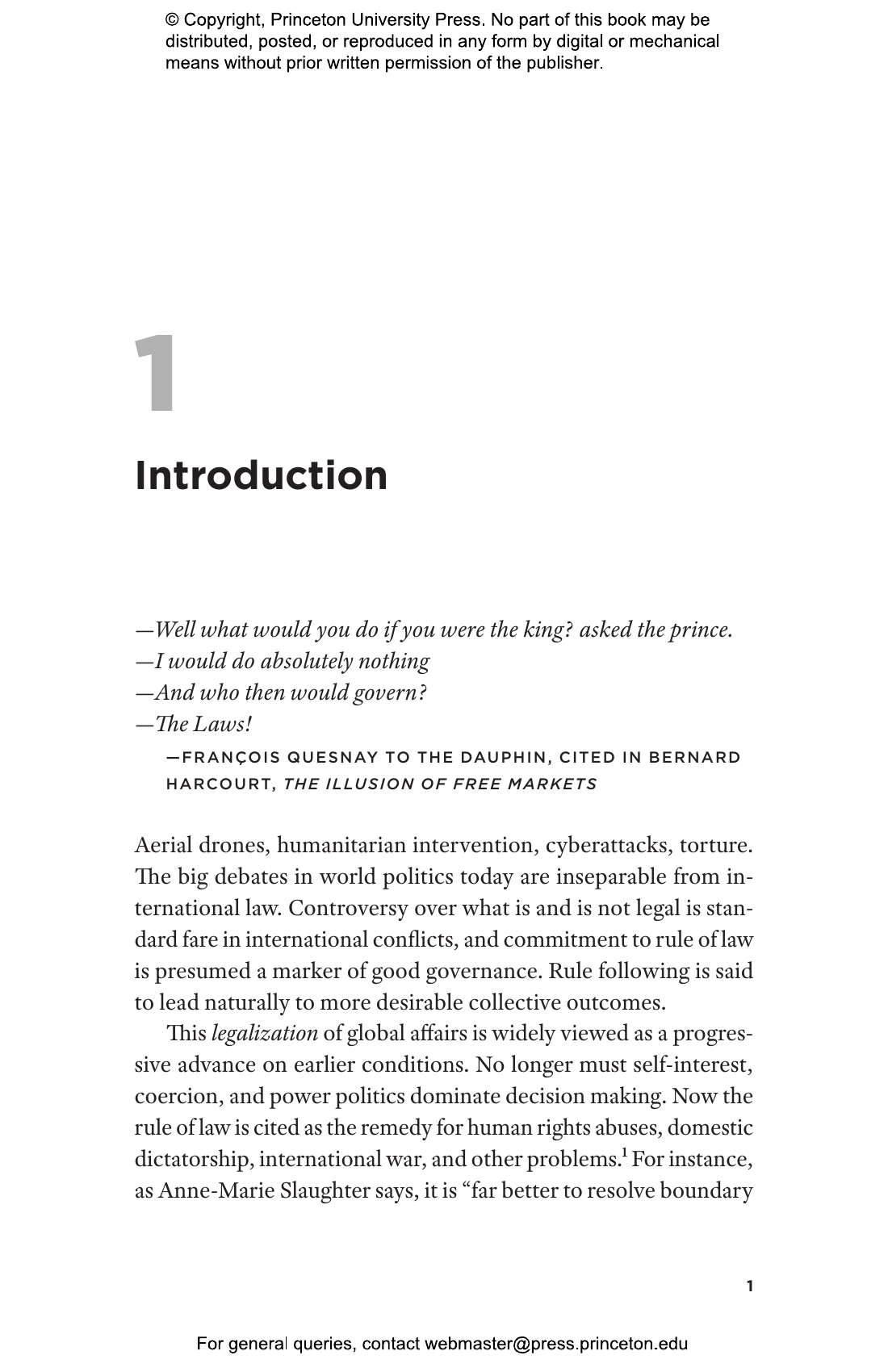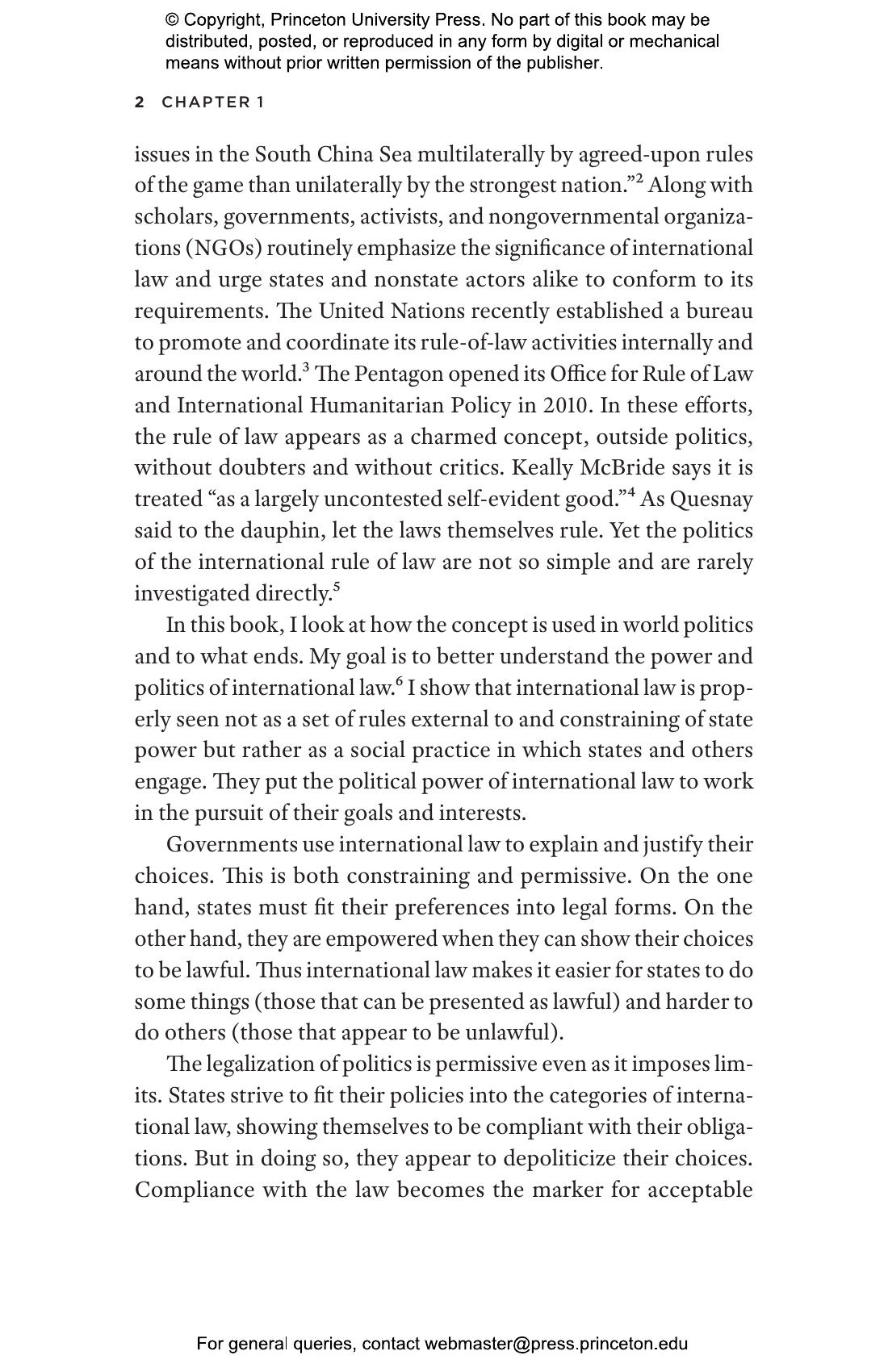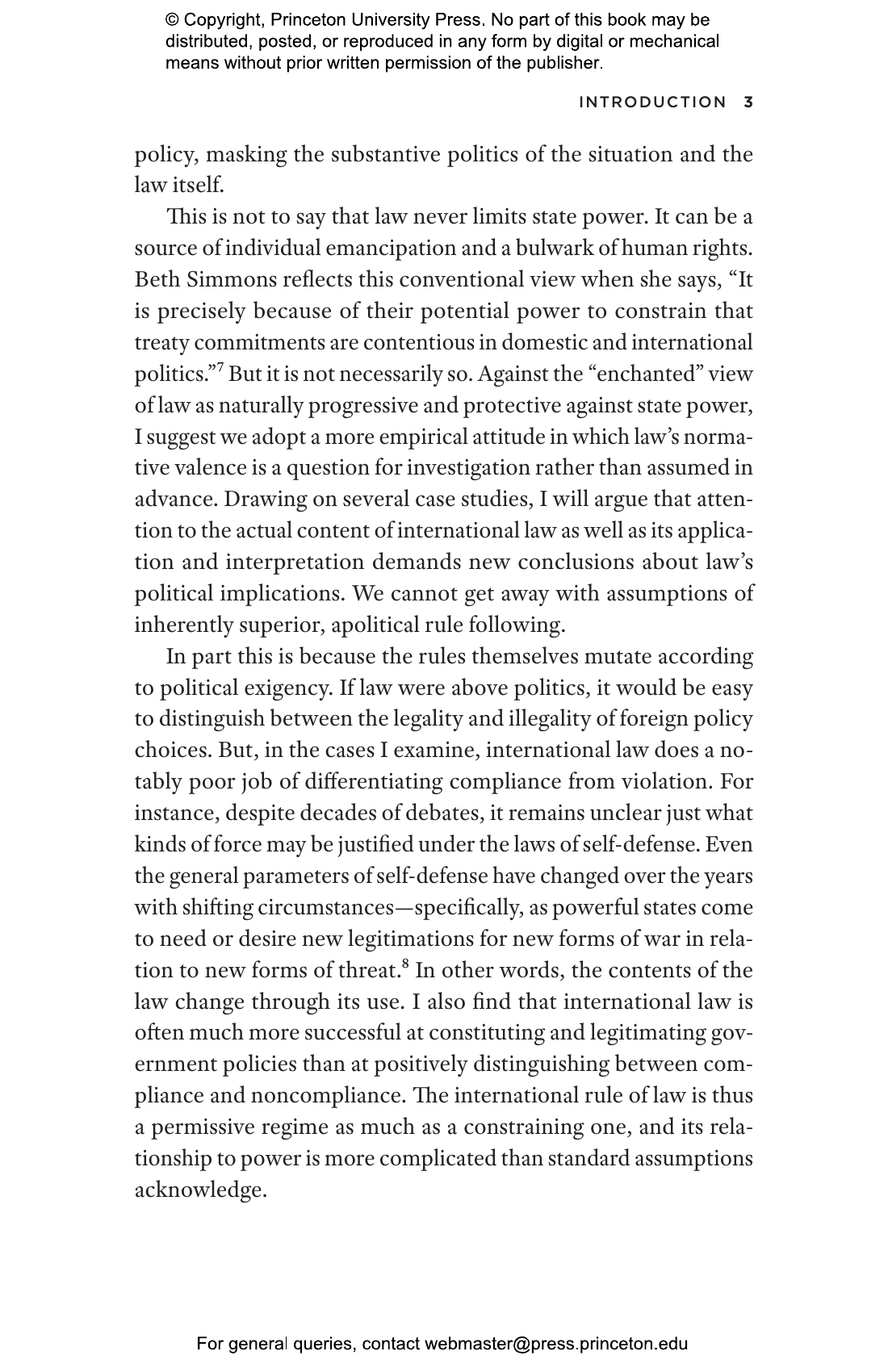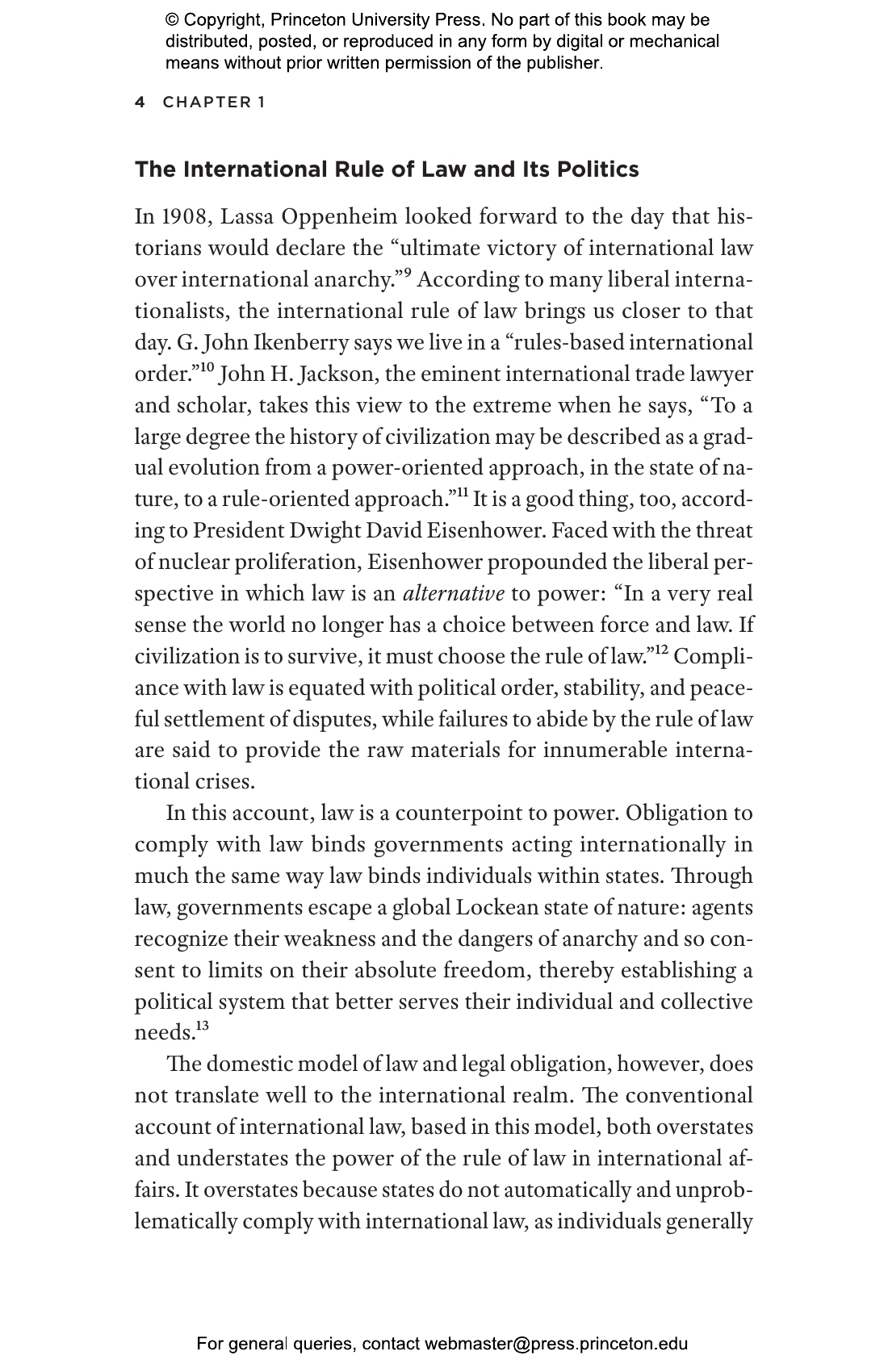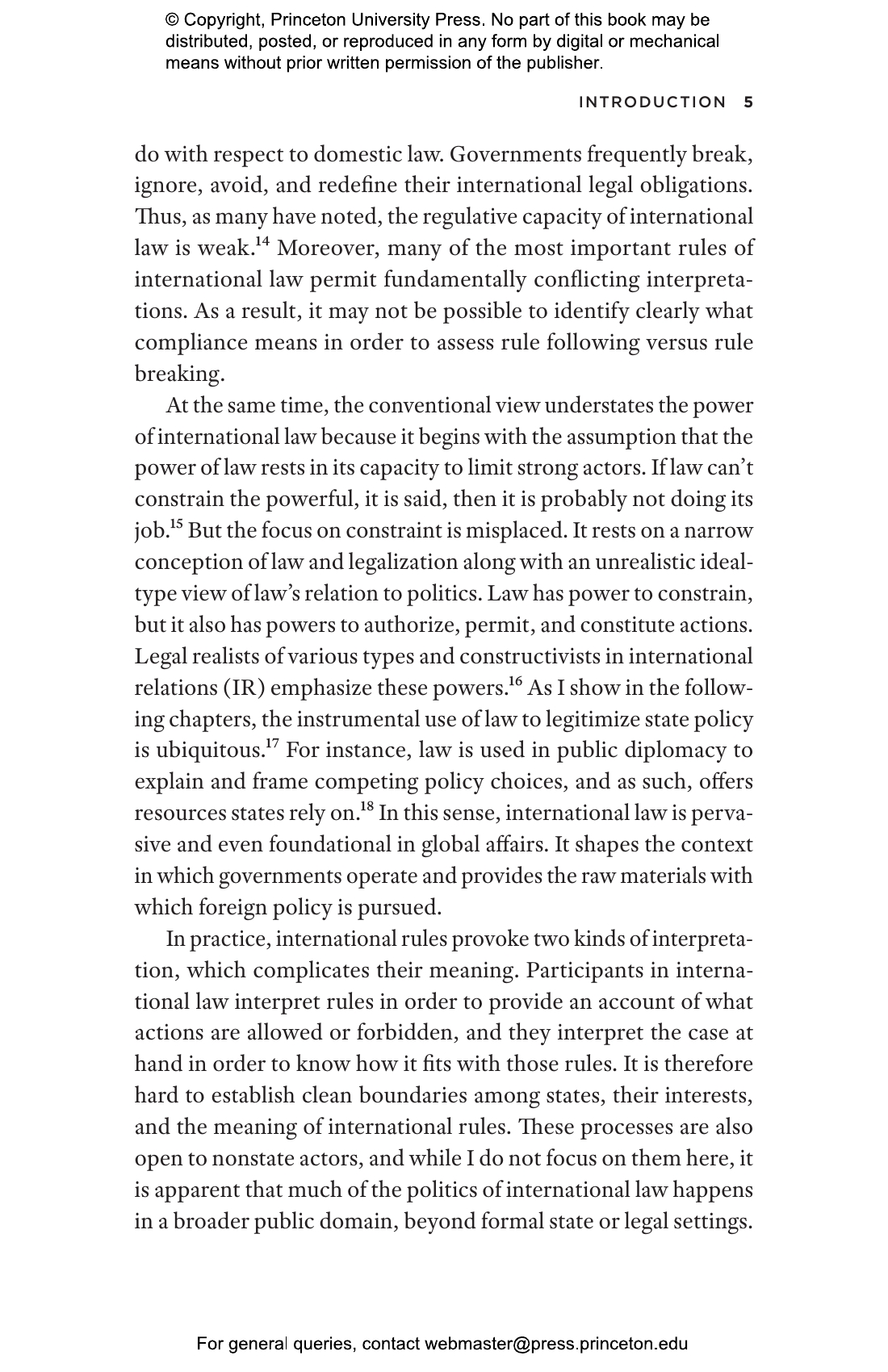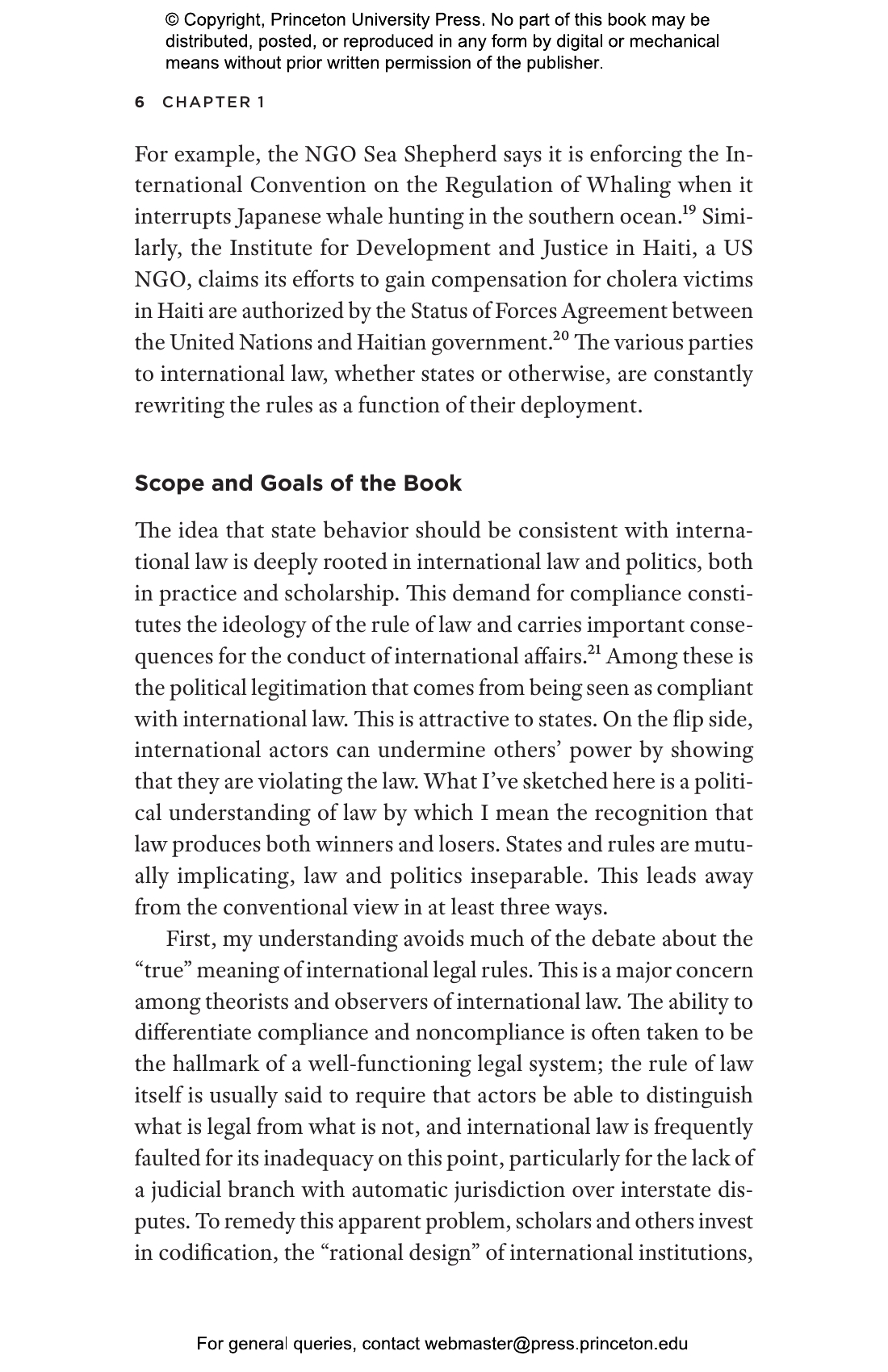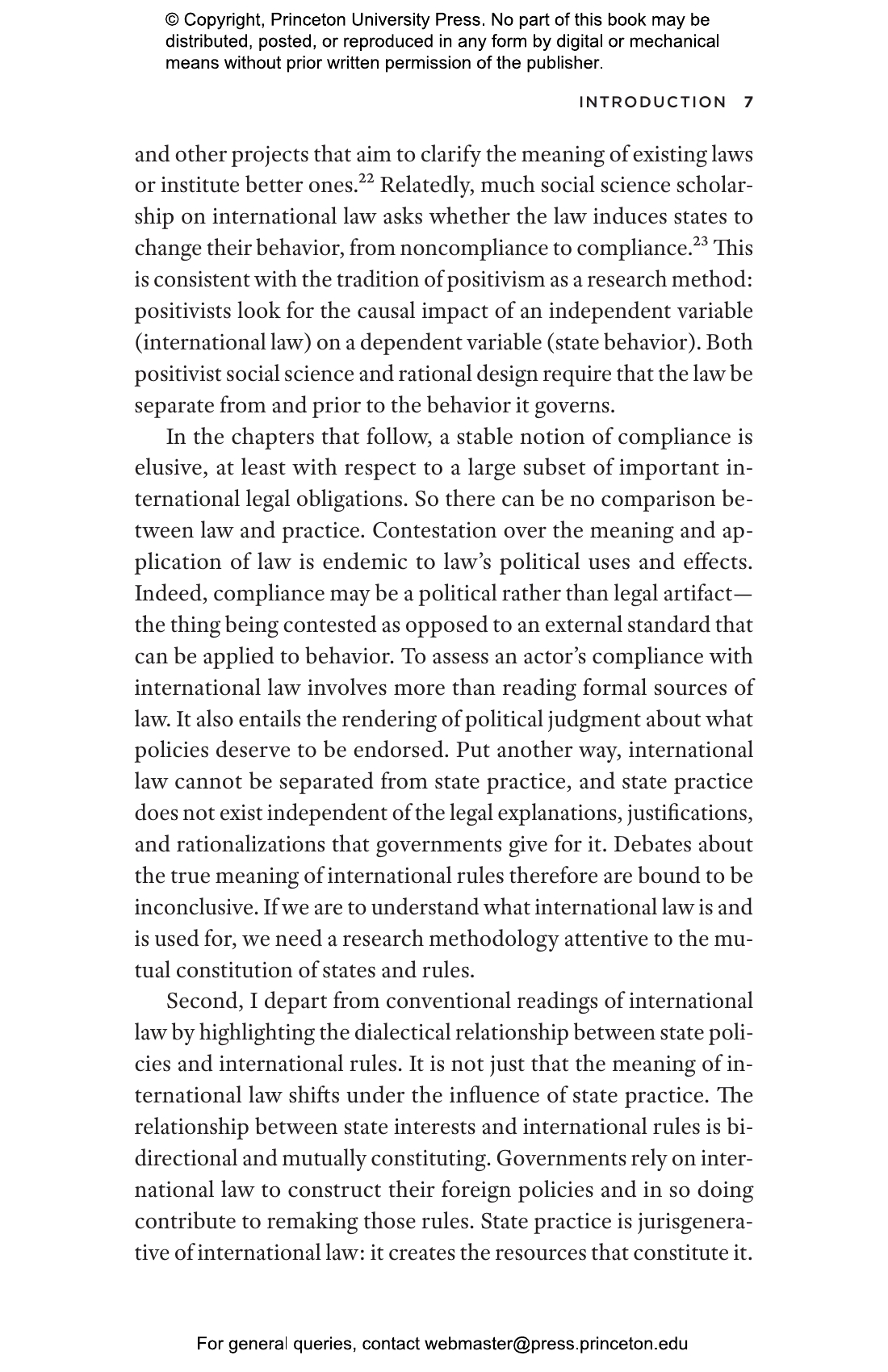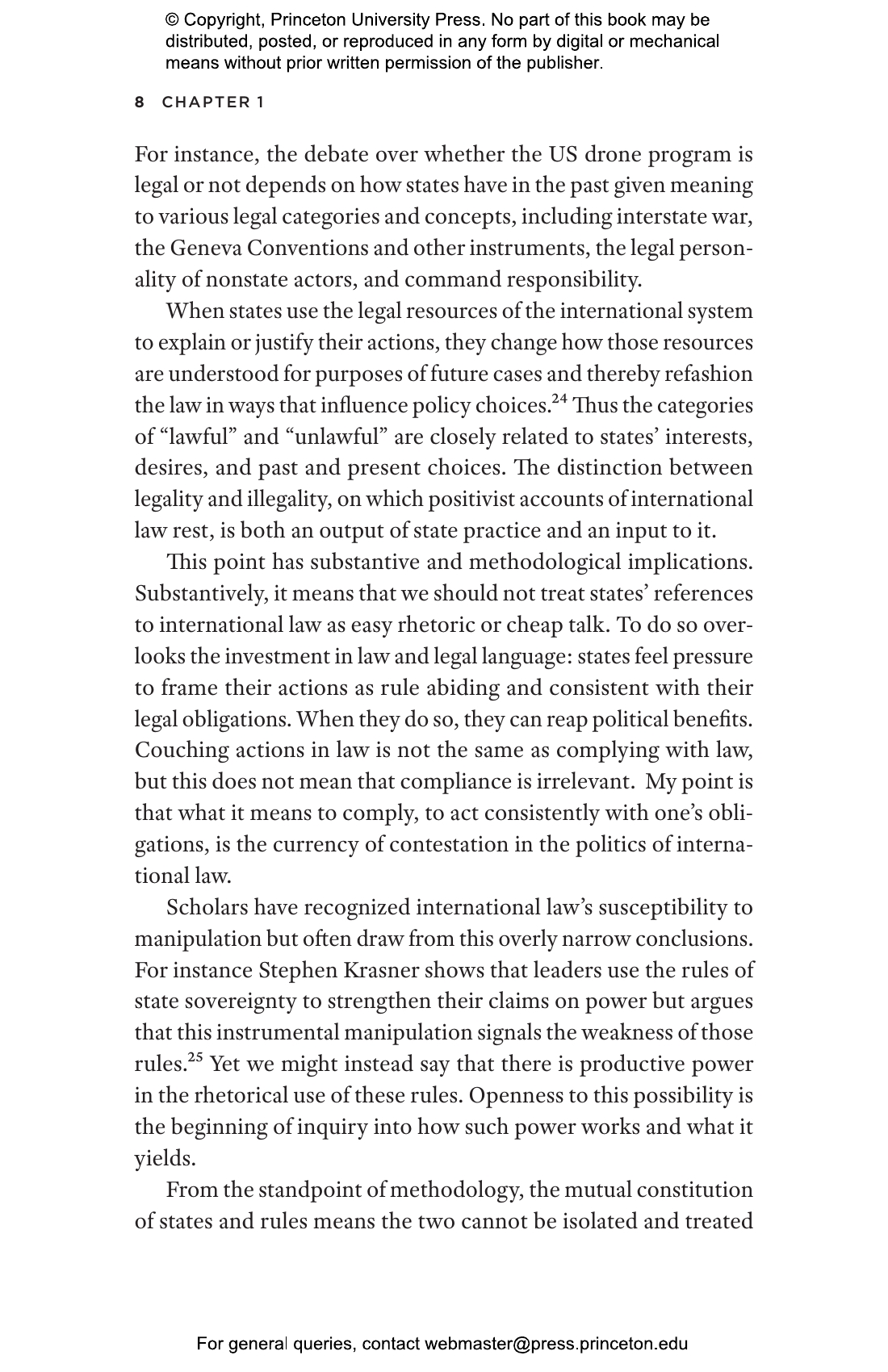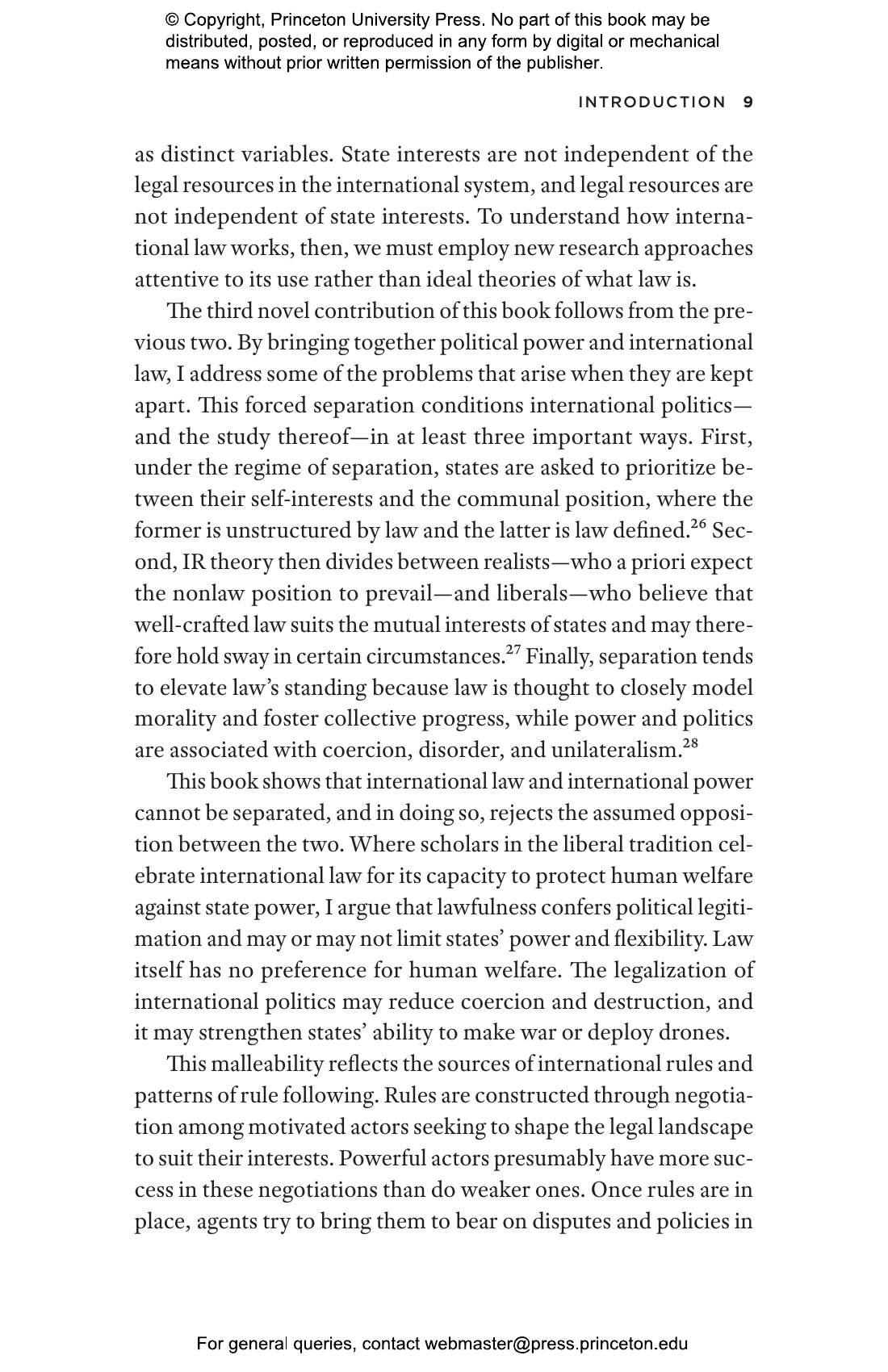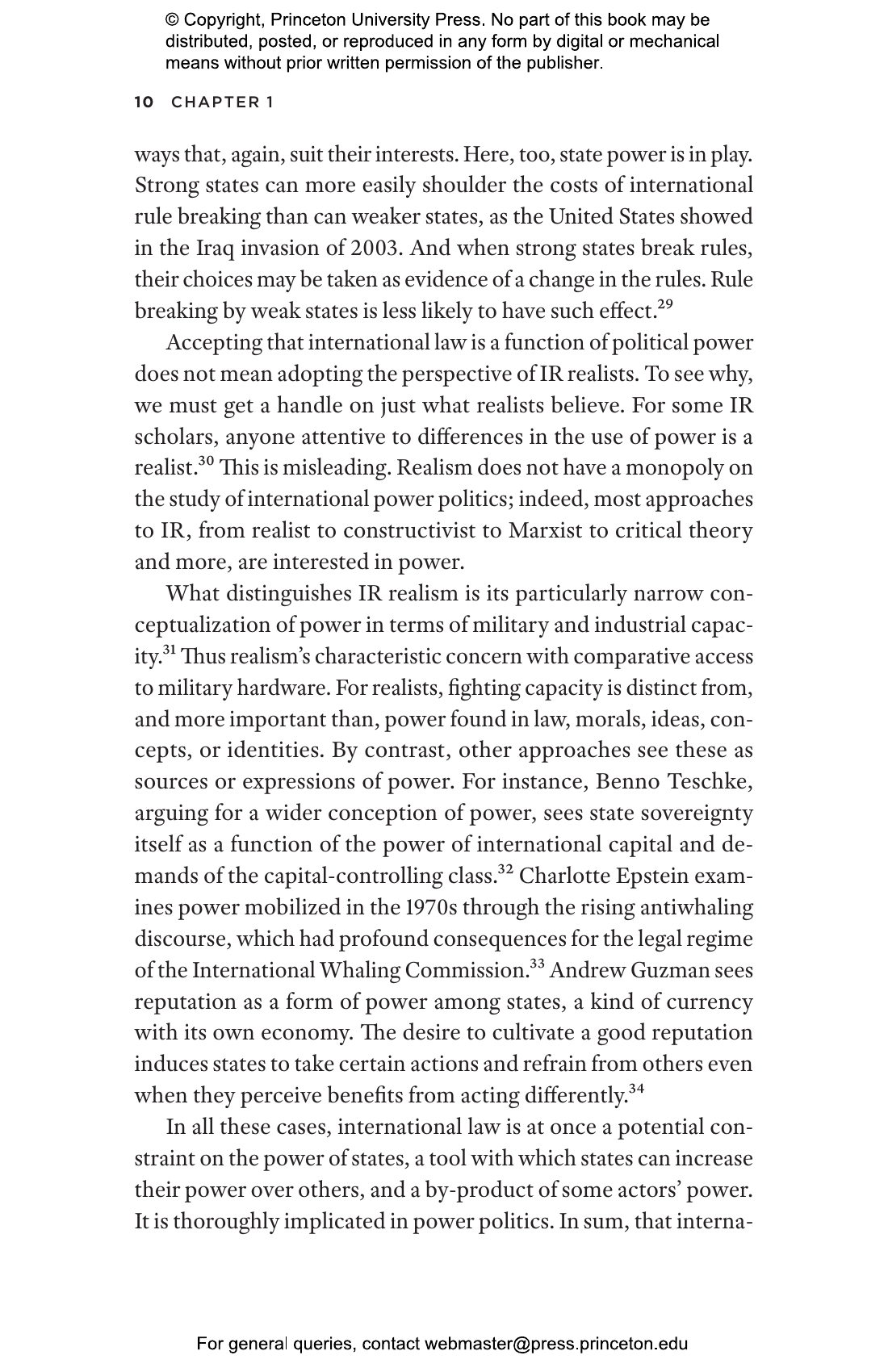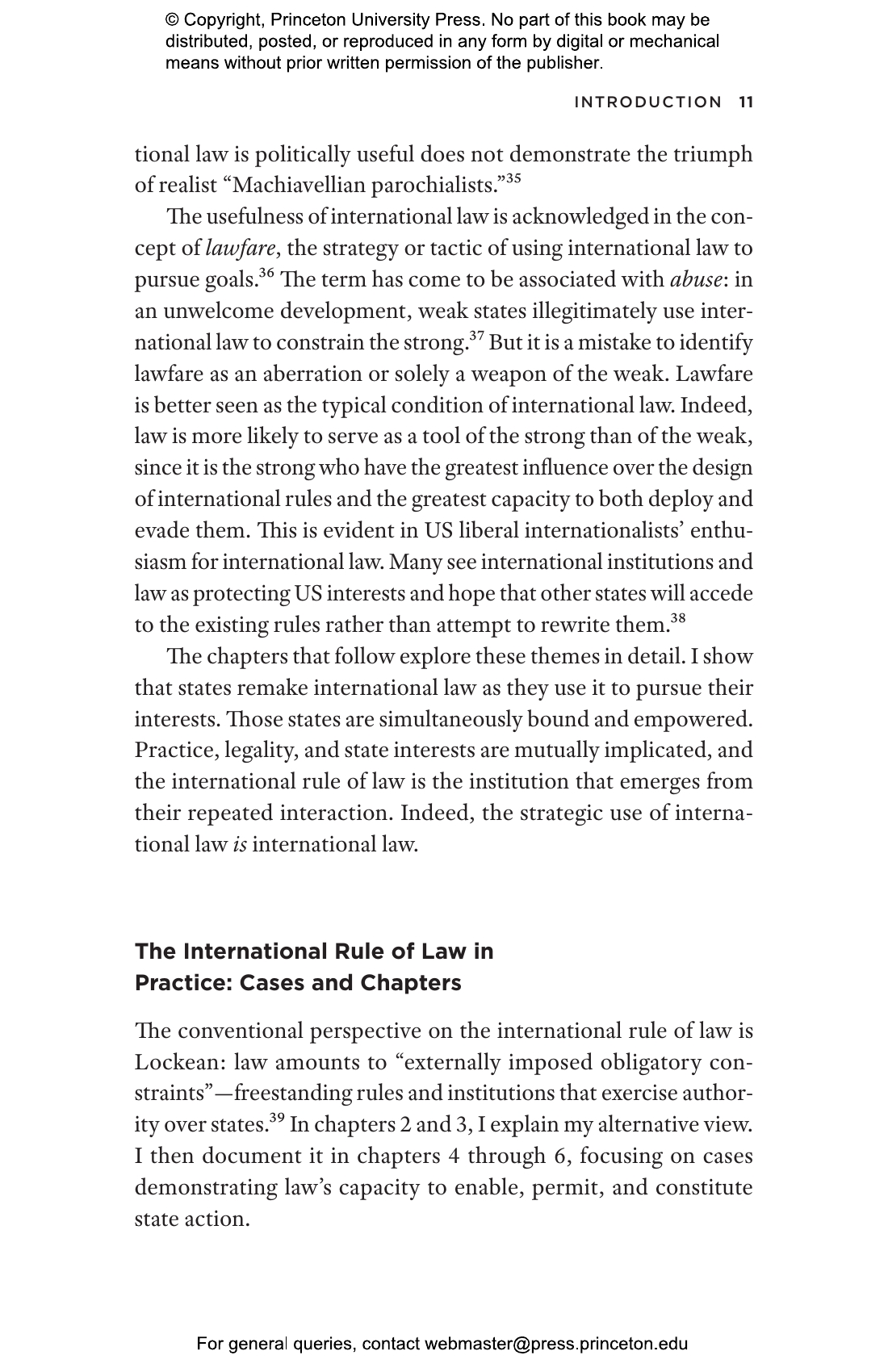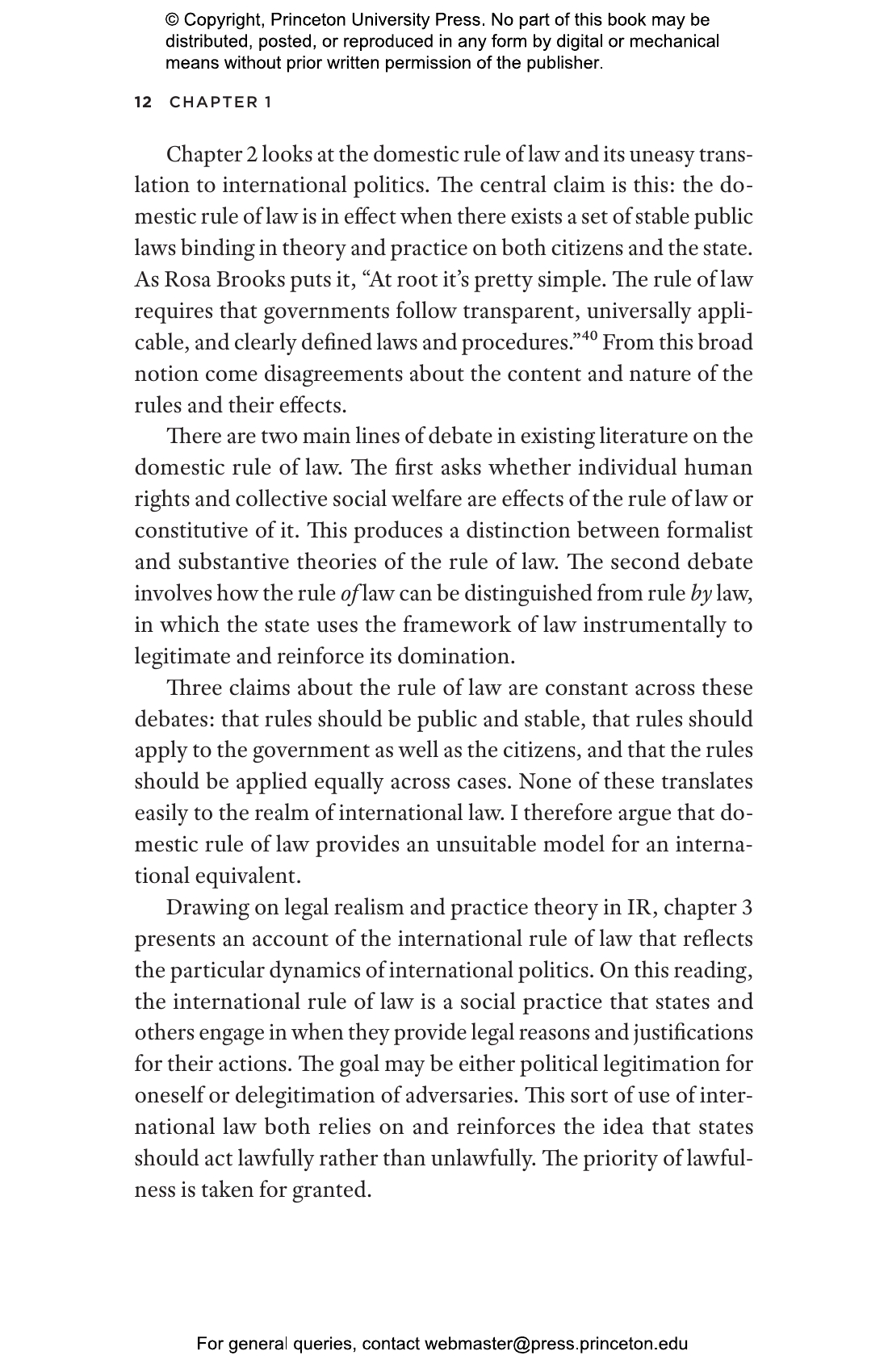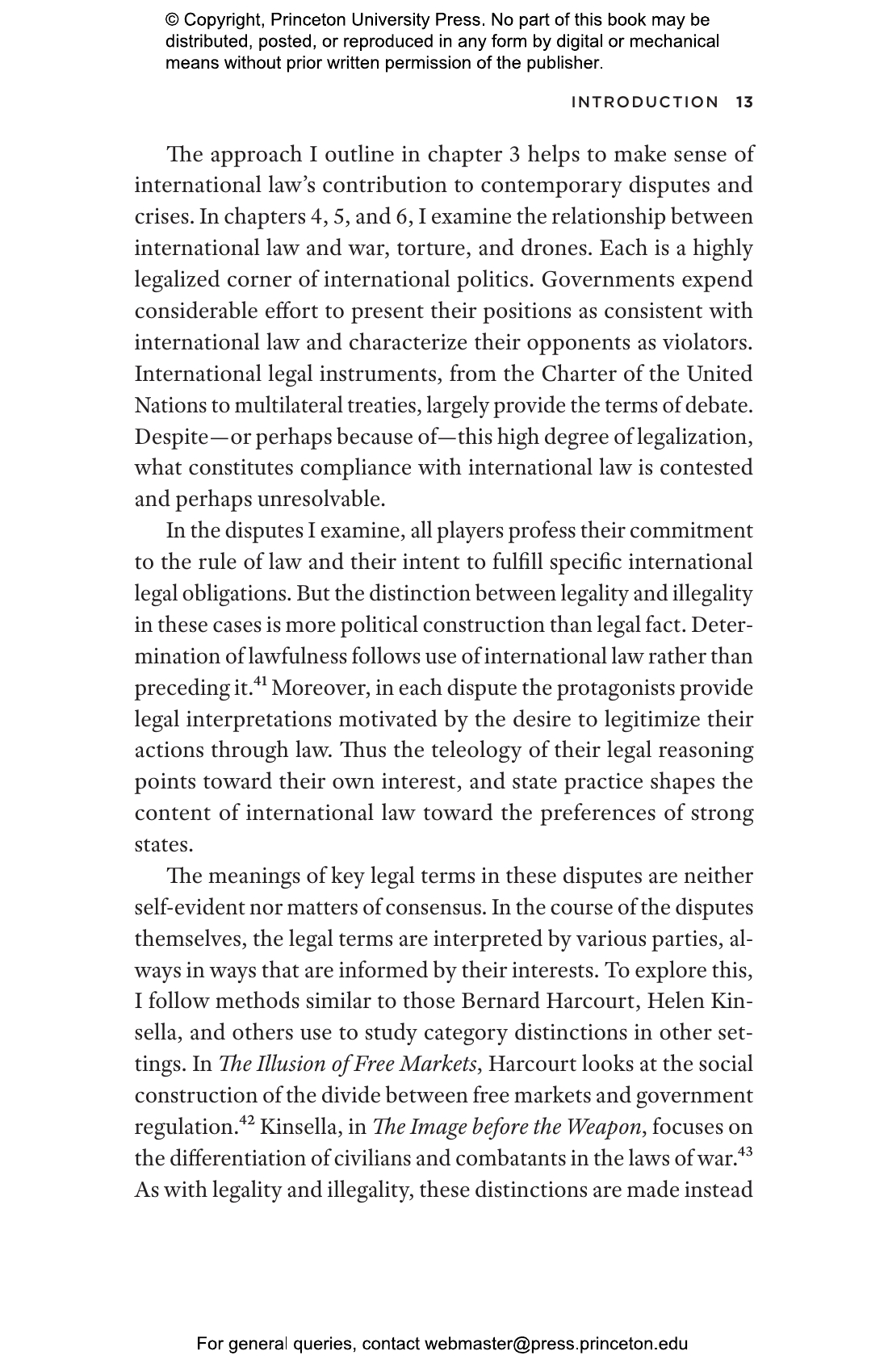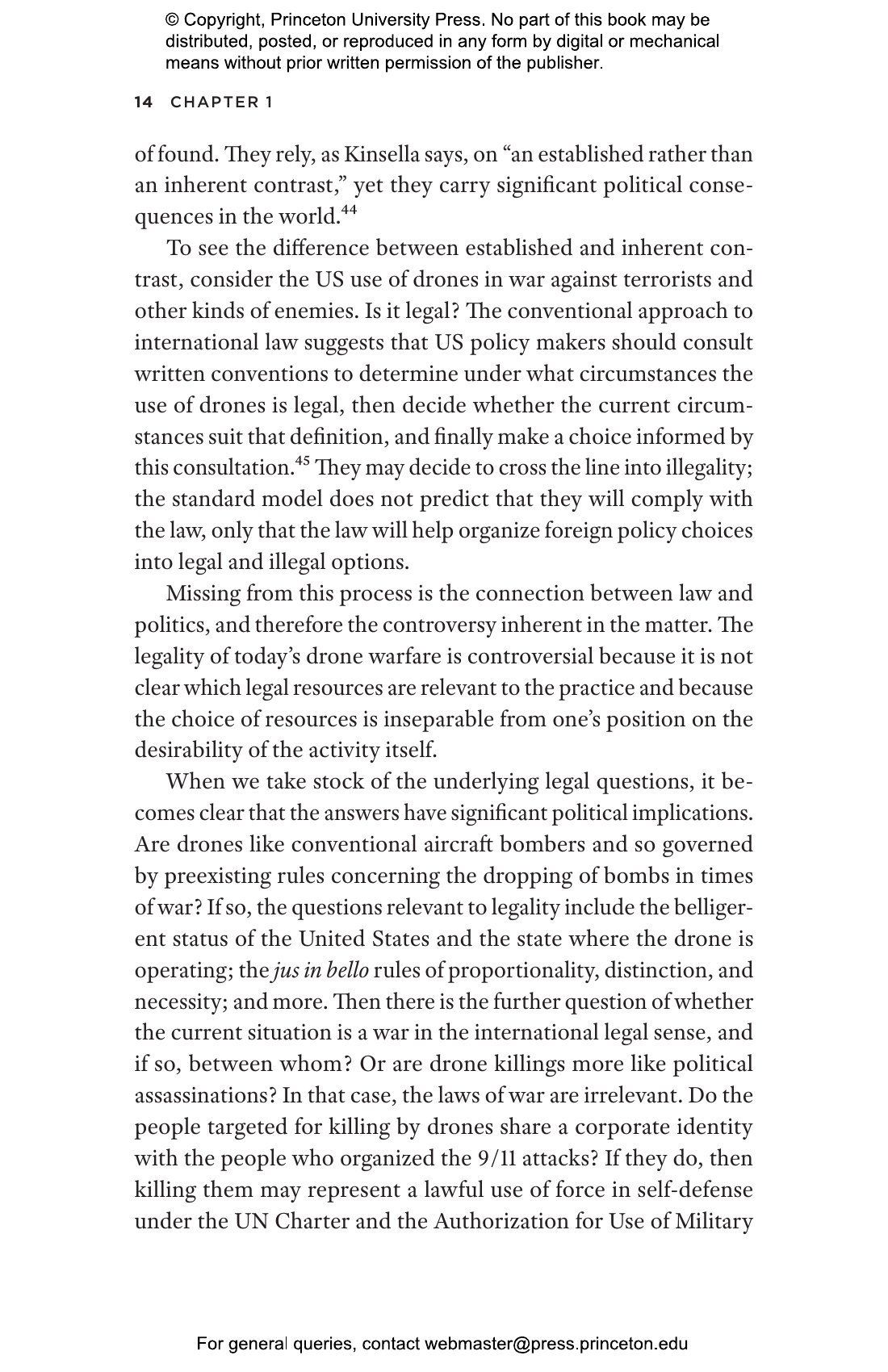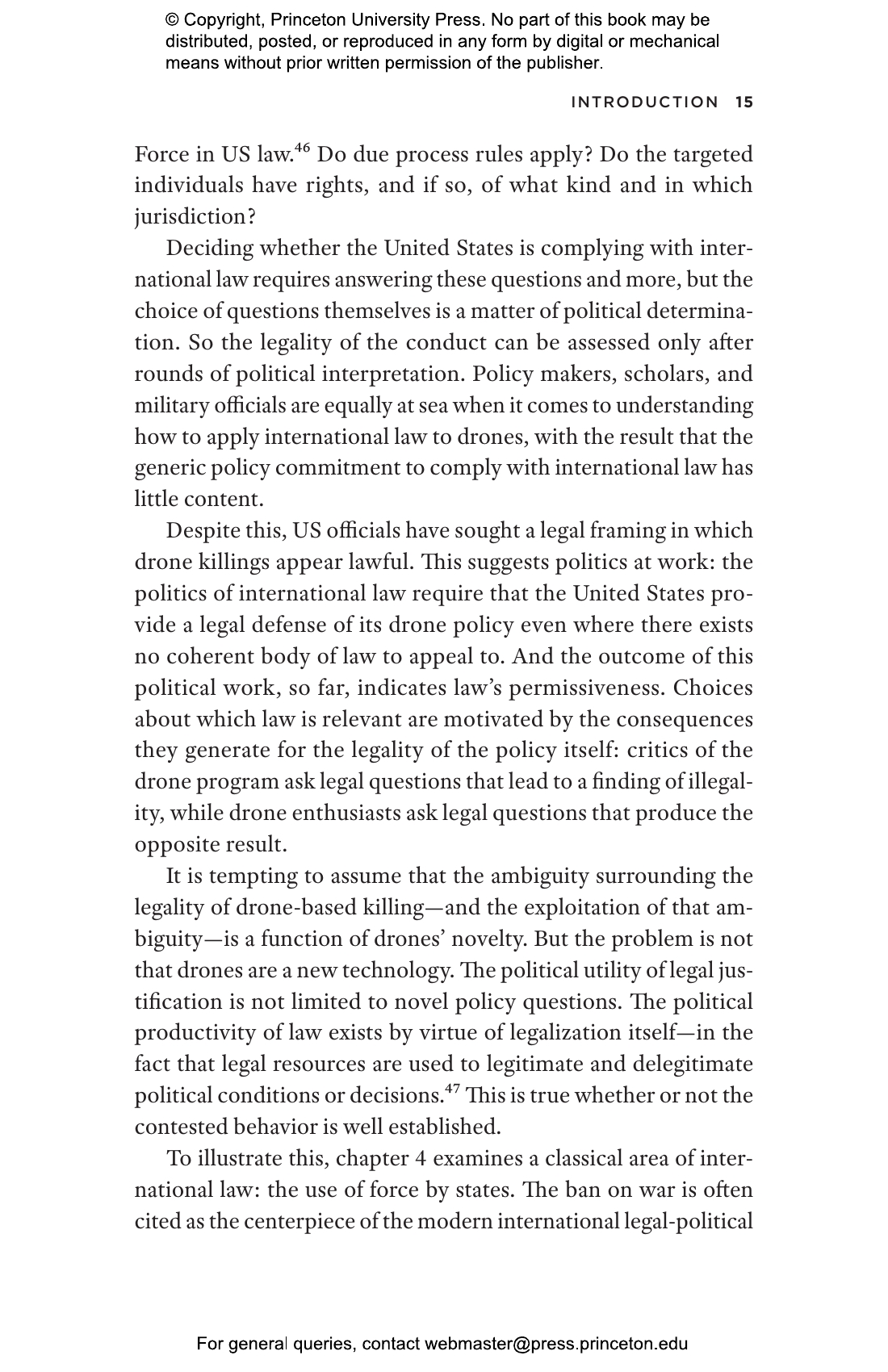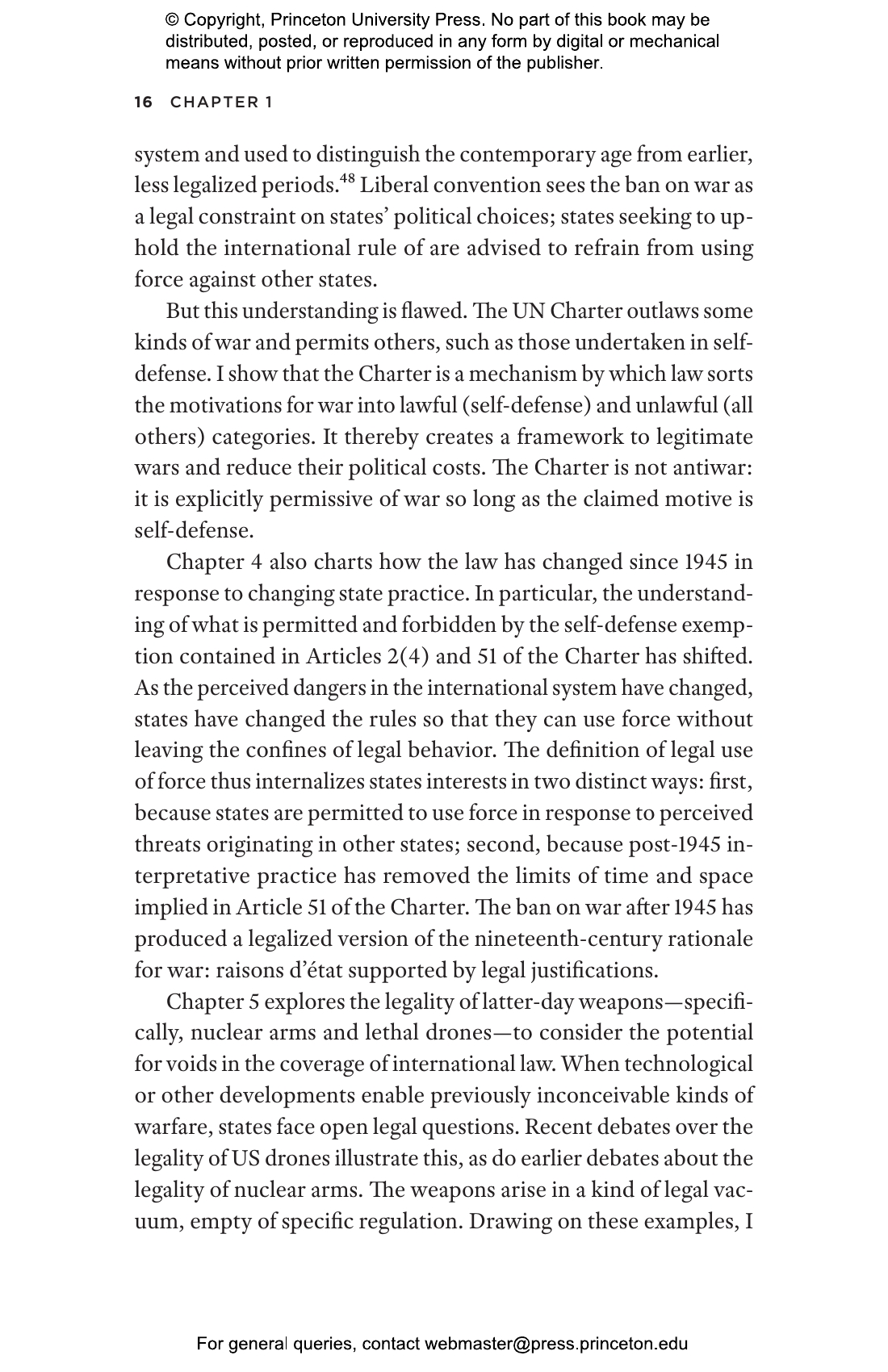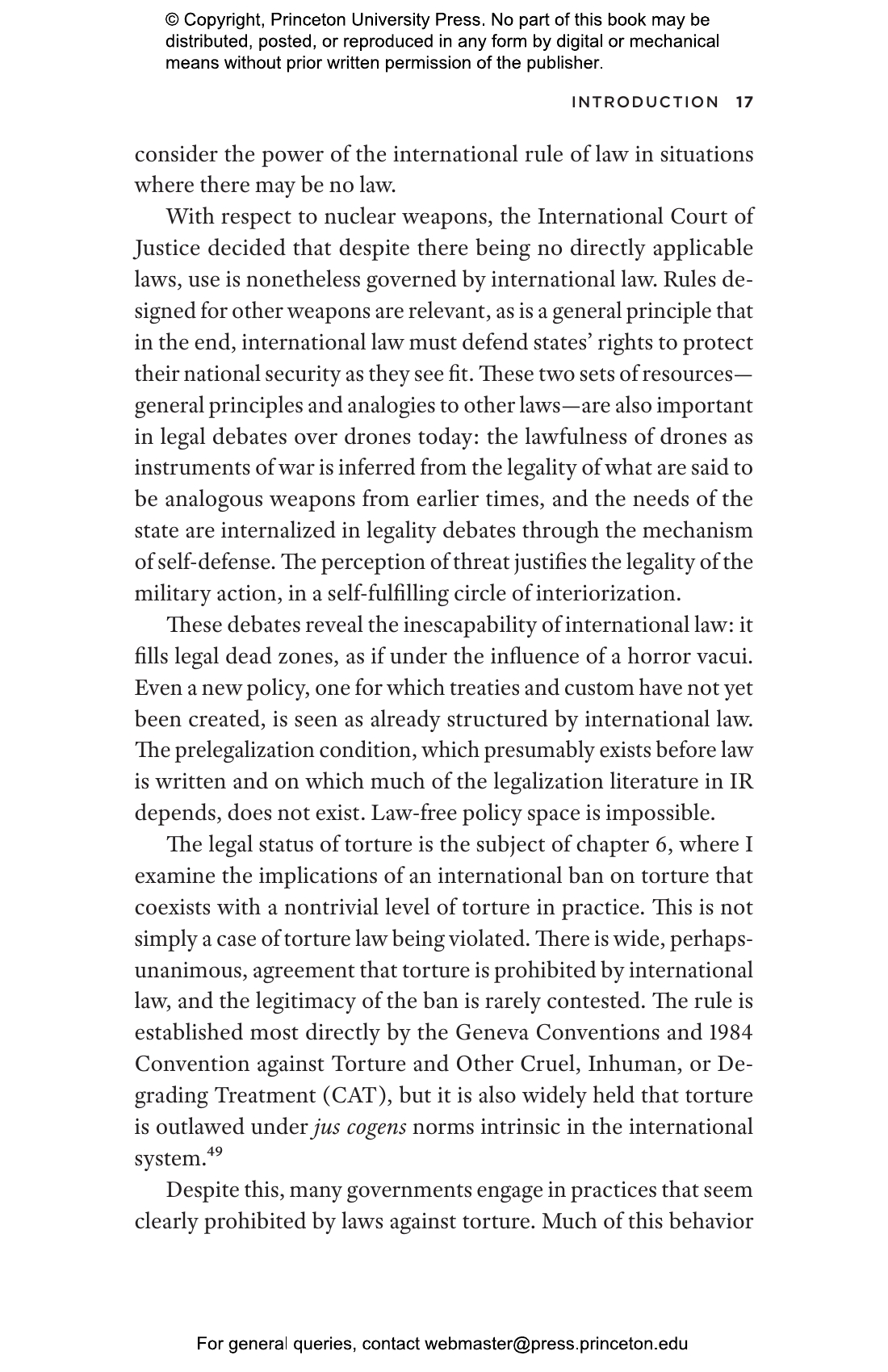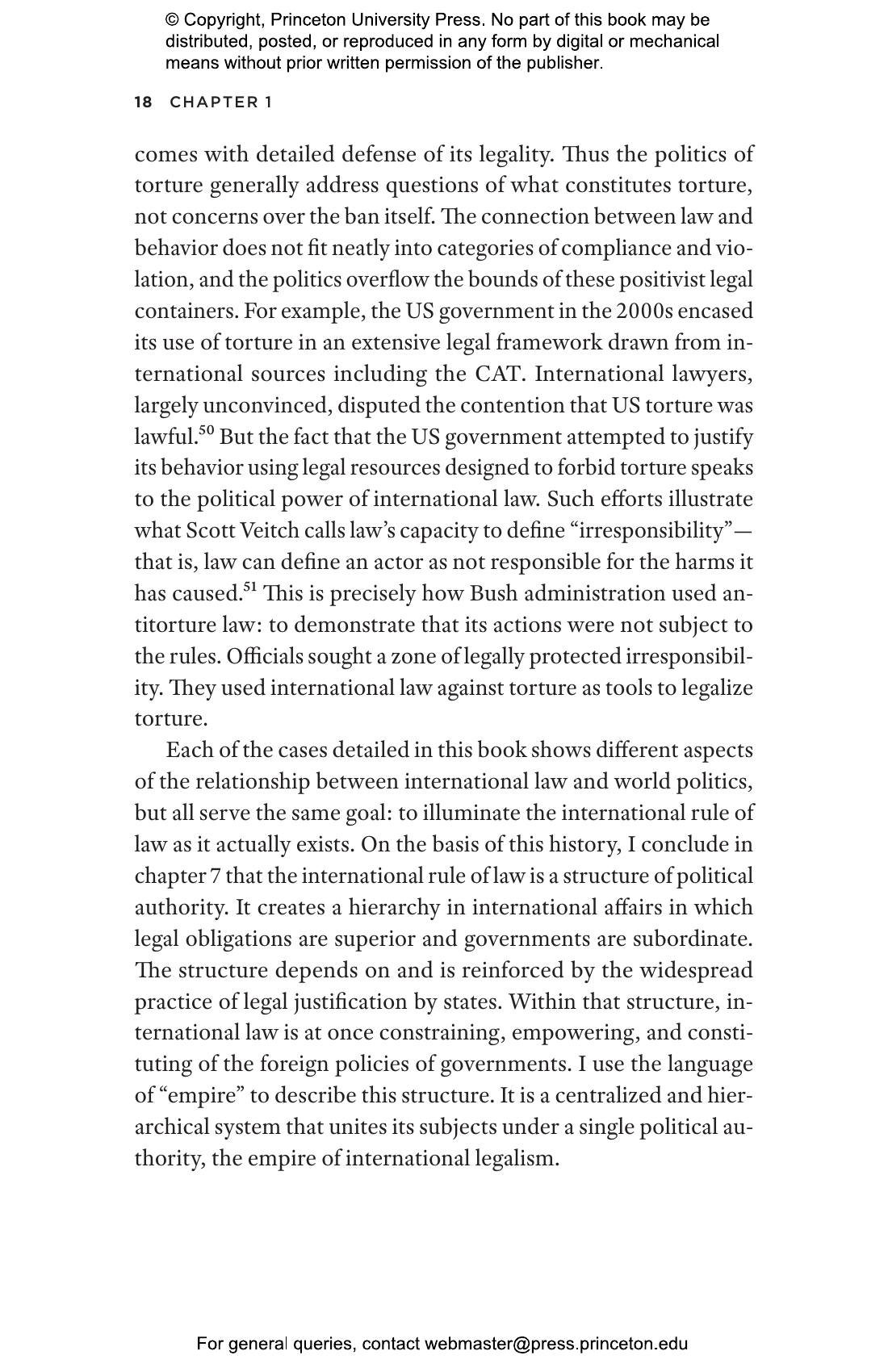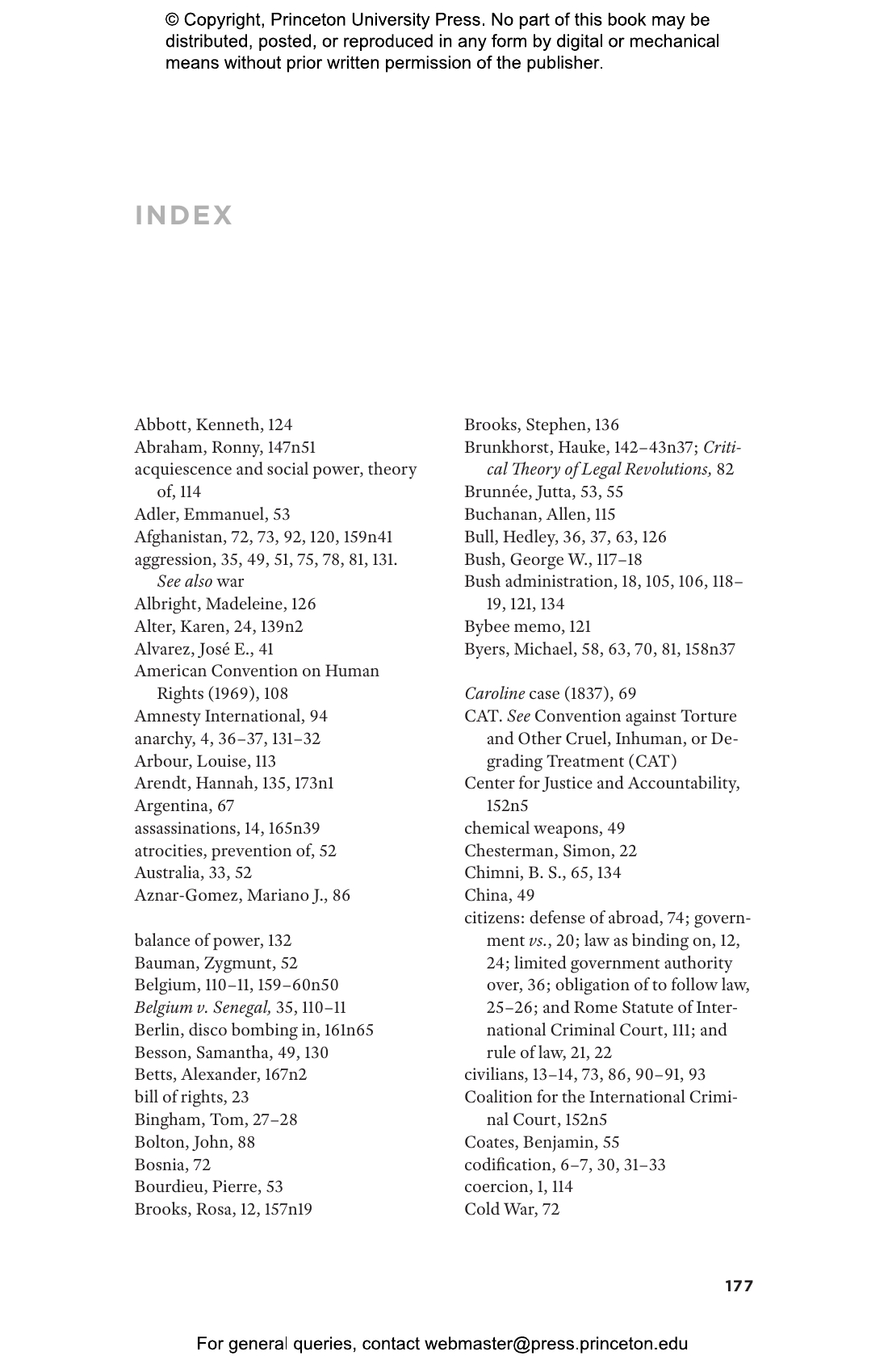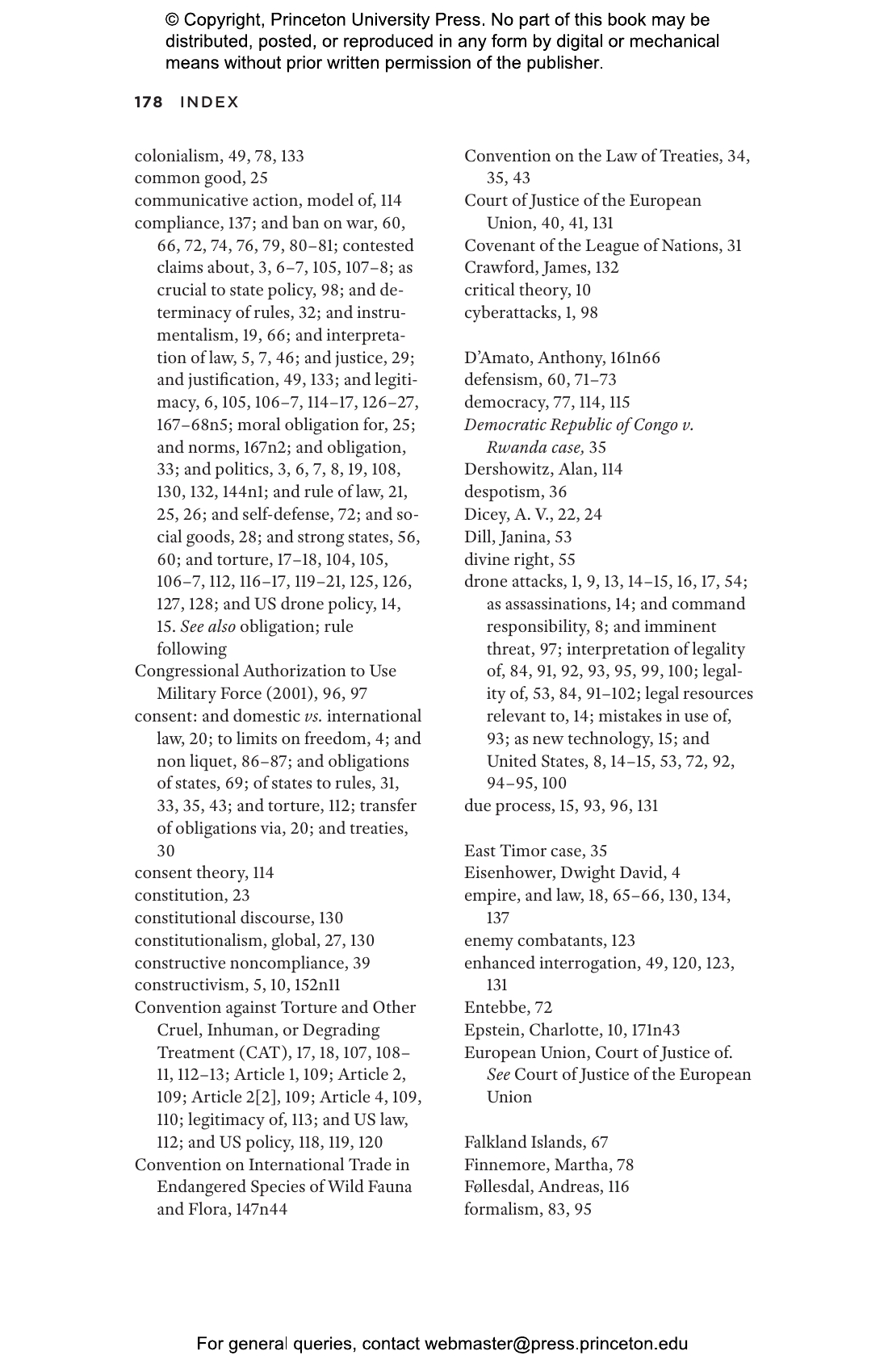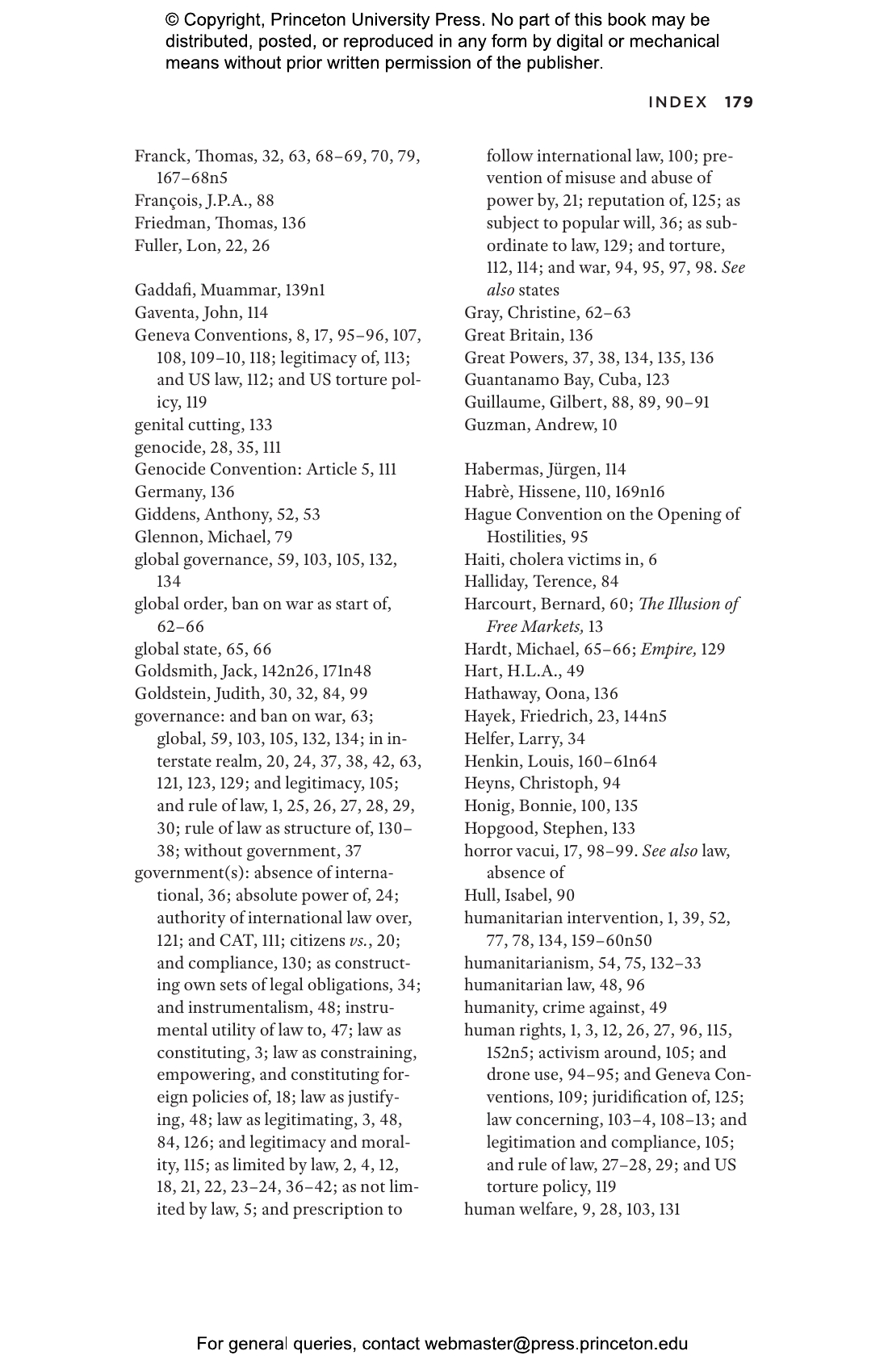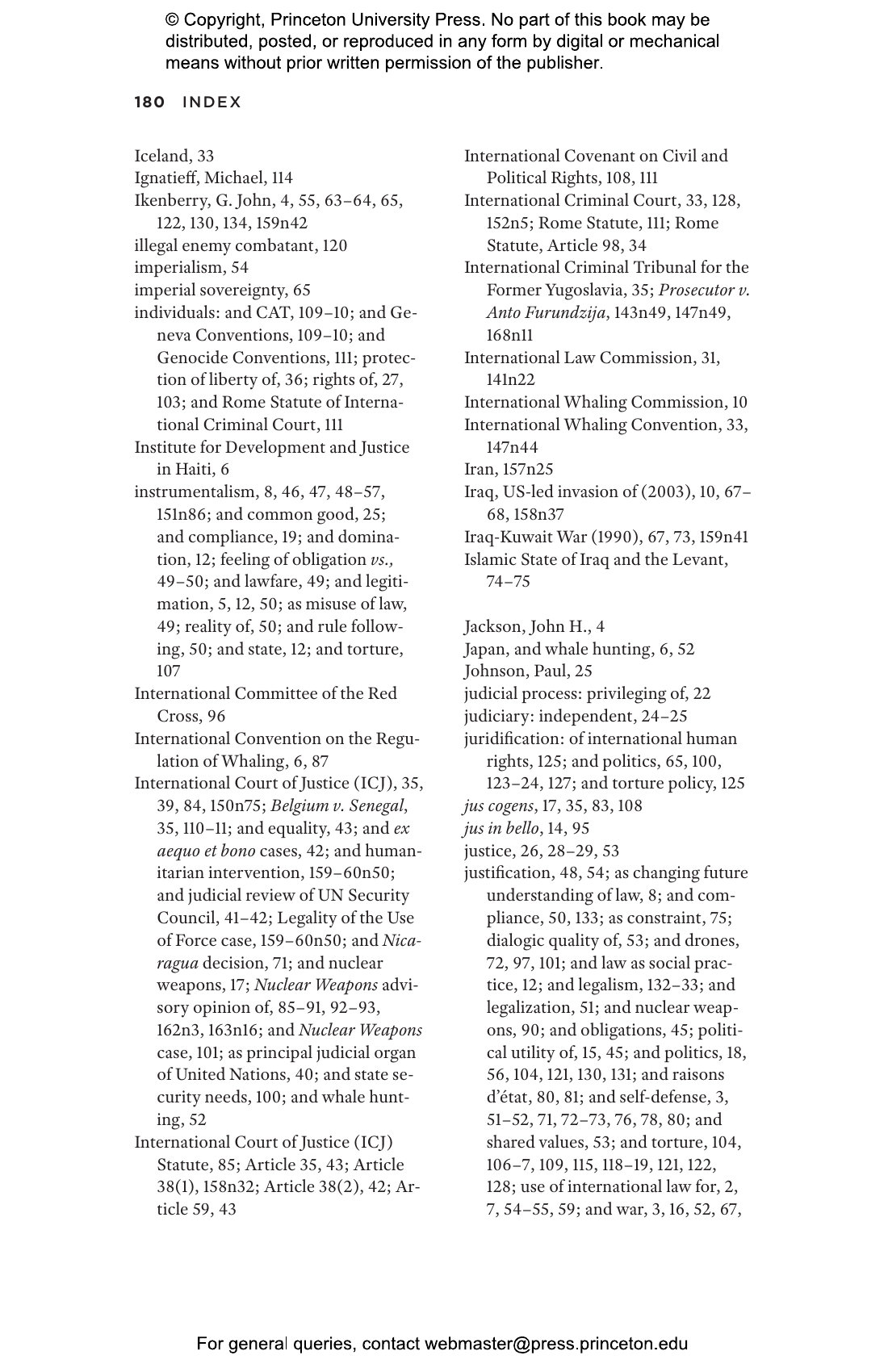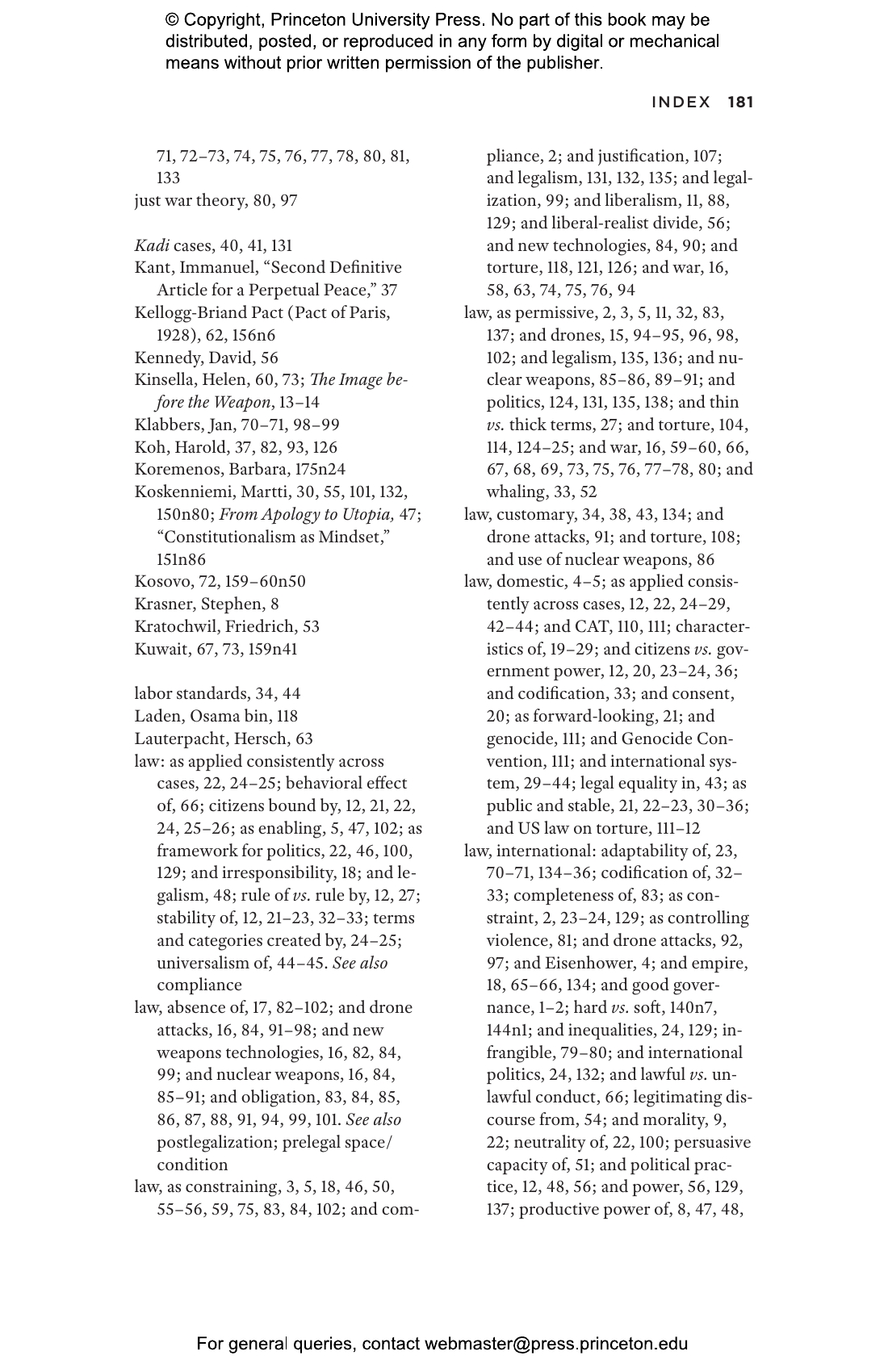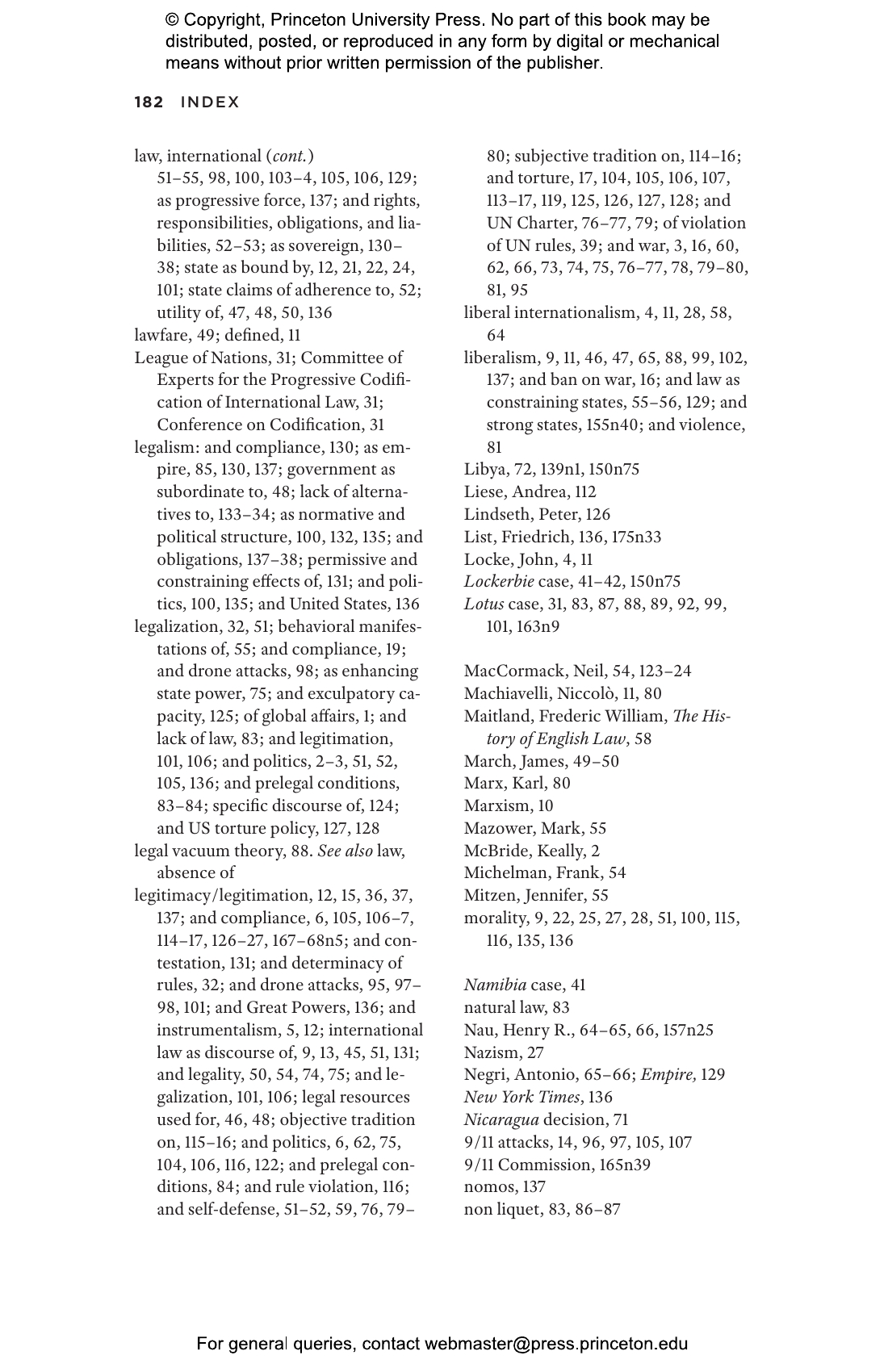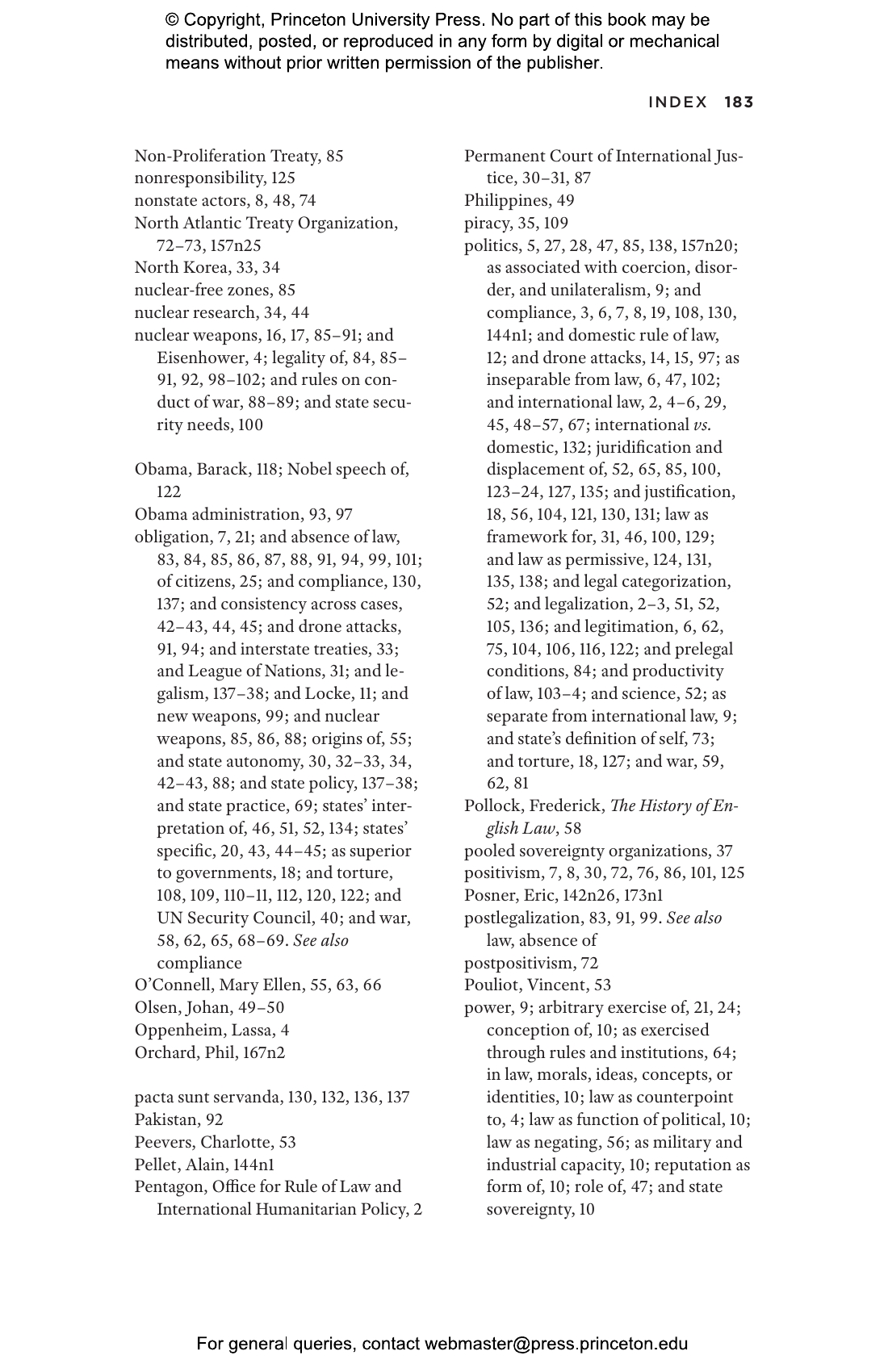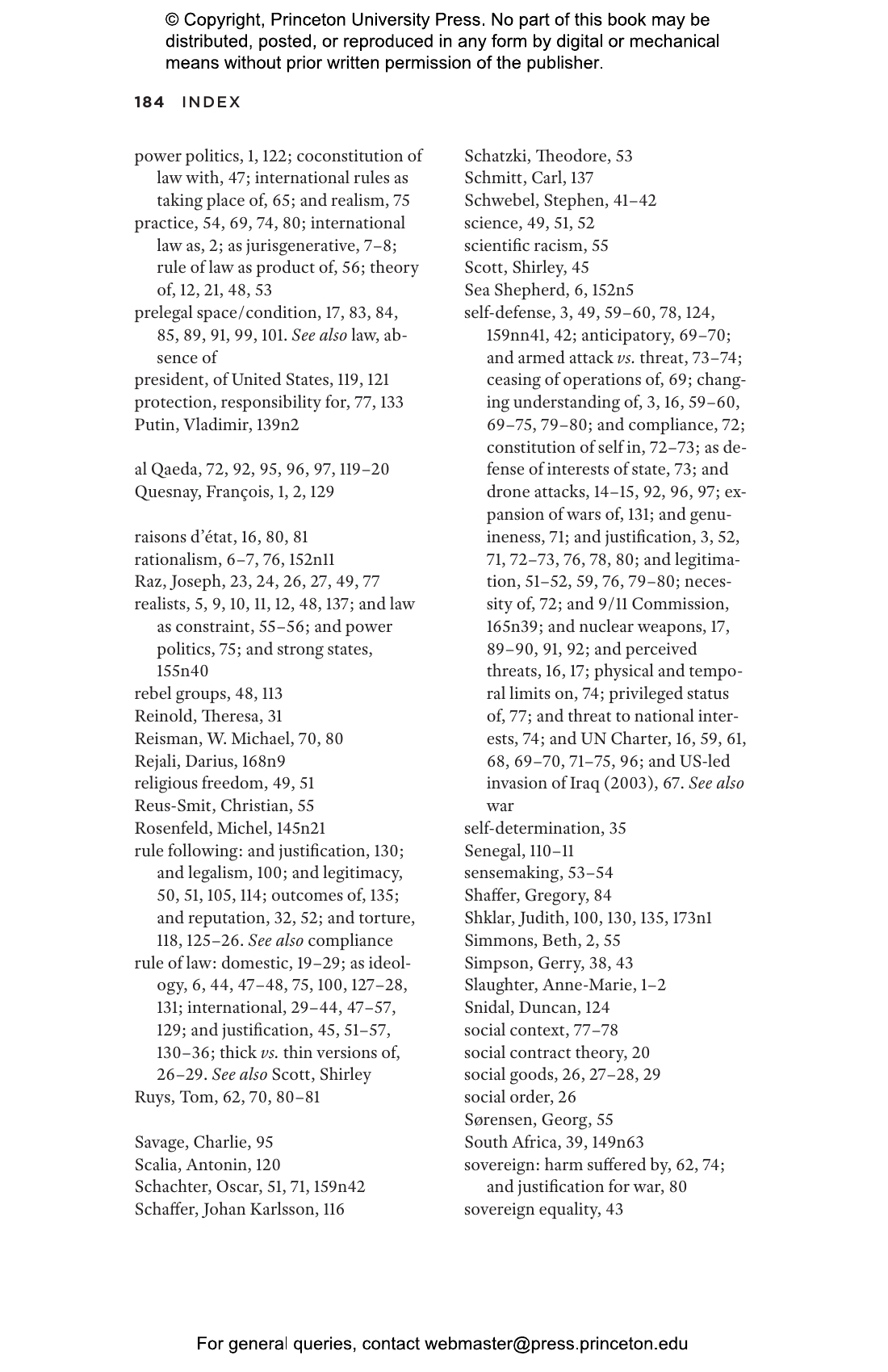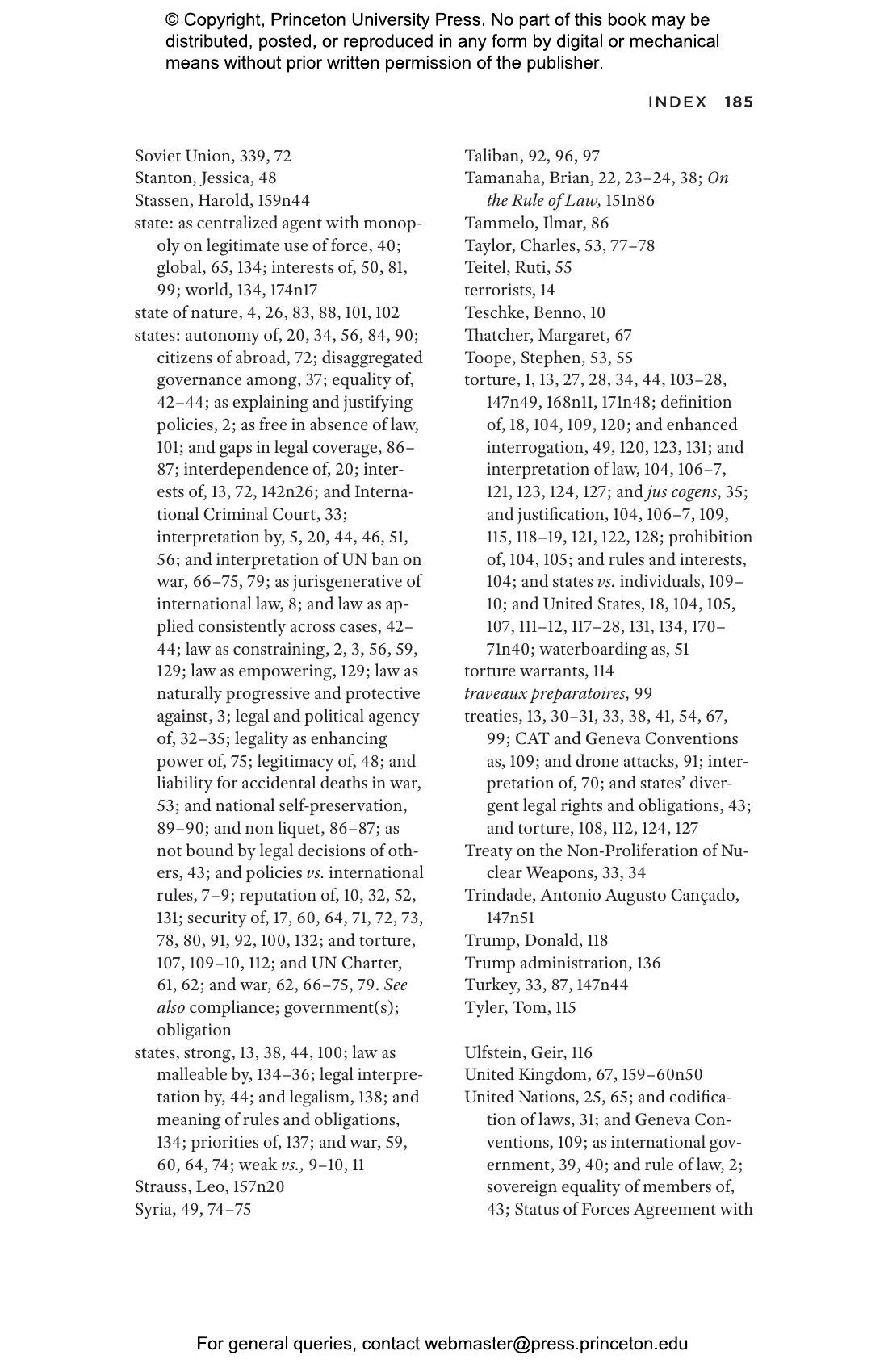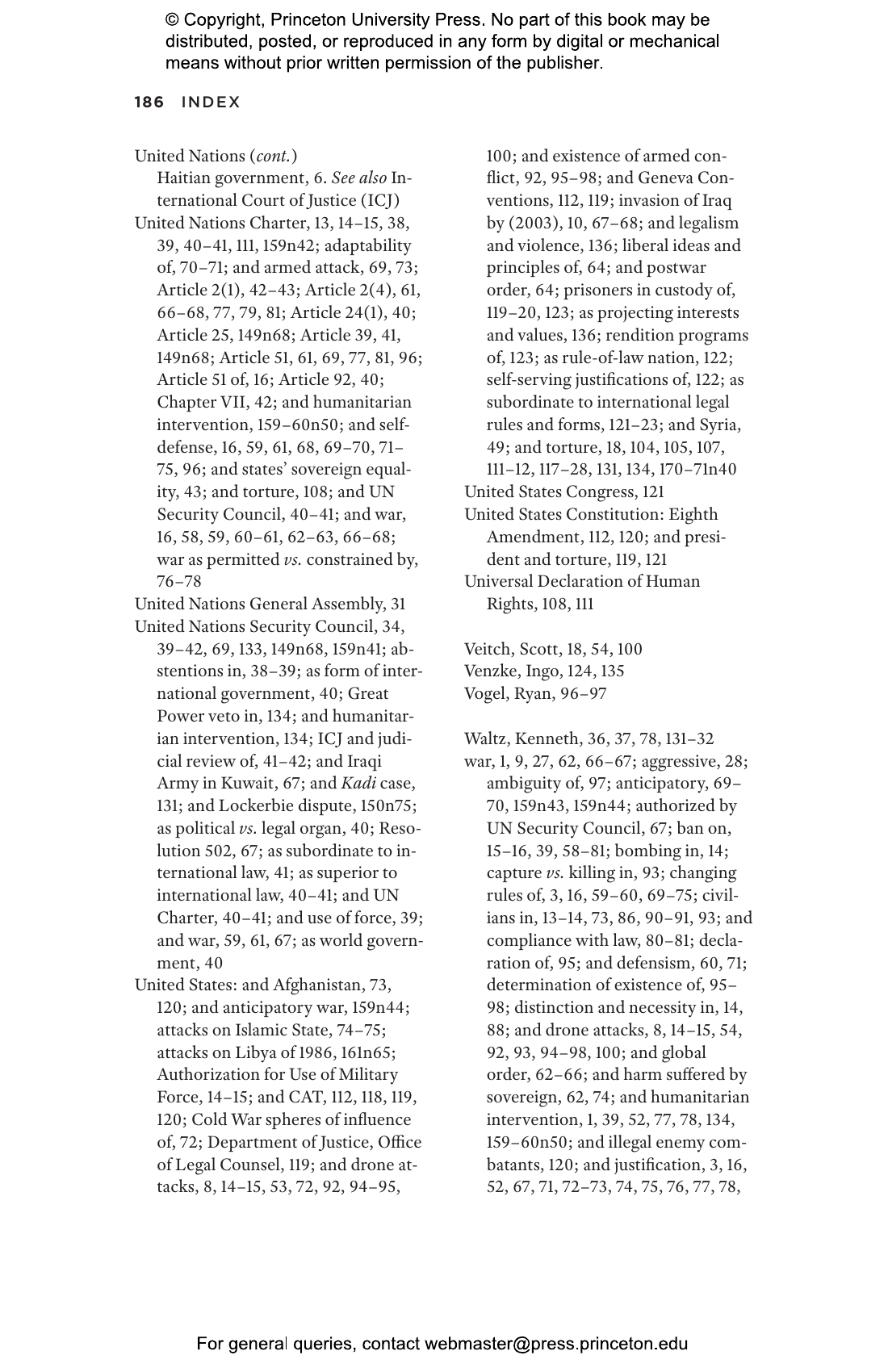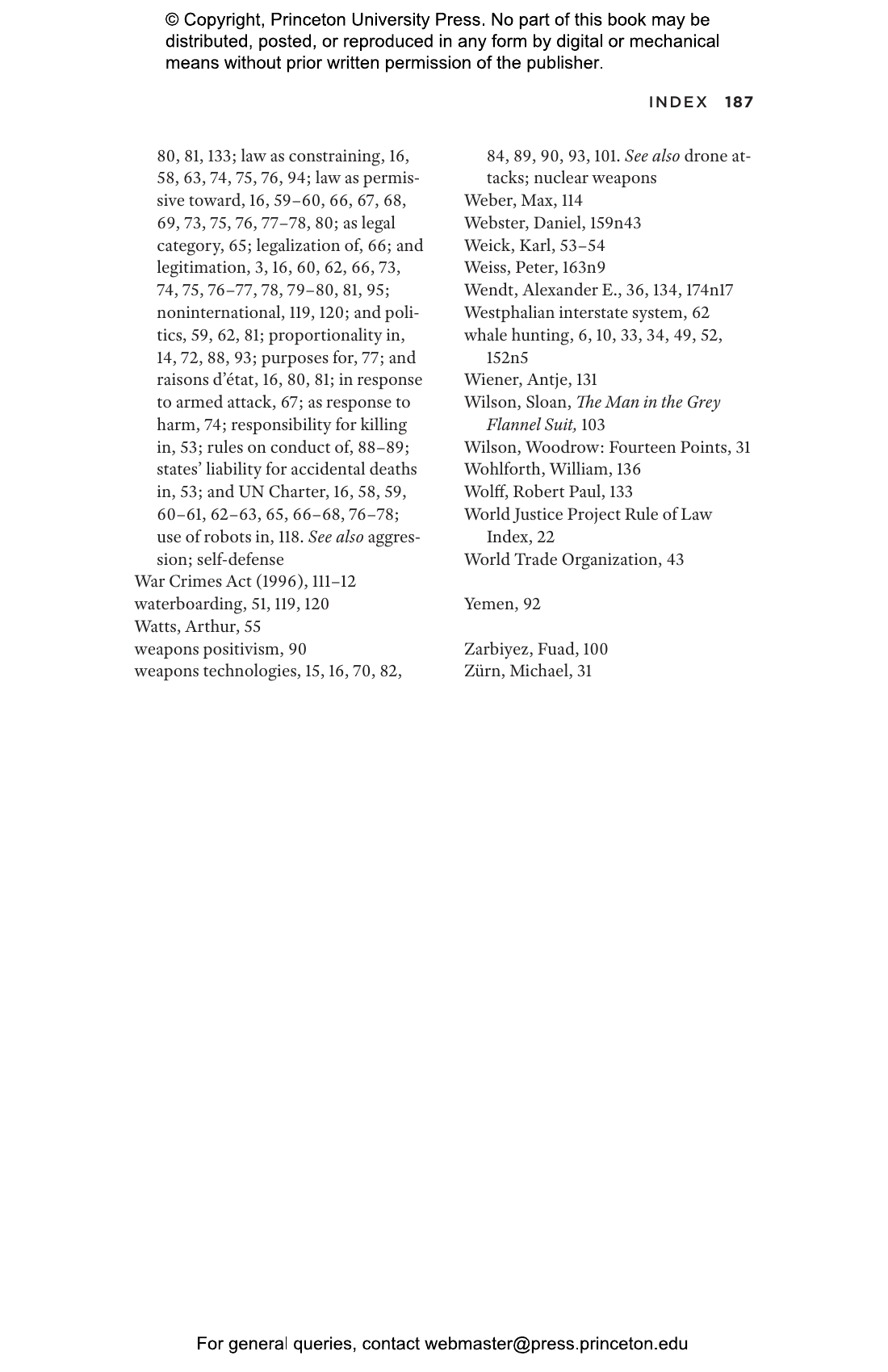Conventionally understood as a set of limits on state behavior, the “rule of law” in world politics is widely assumed to serve as a progressive contribution to a just, stable, and predictable world. In How to Do Things with International Law, Ian Hurd challenges this received wisdom. Bringing the study of law and legality together with power, politics, and legitimation, he illustrates the complex politics of the international rule of law.
Hurd draws on a series of timely case studies involving recent legal arguments over war, torture, and drones to demonstrate that international law not only domesticates state power but also serves as a permissive and even empowering source of legitimation for state action—including violence and torture. Rather than a civilizing force that holds the promise of universal peace, international law is a deeply politicized set of practices driven by the pursuit of particular interests and desires. The disputes so common in world politics over what law permits and what it forbids are, therefore, fights over the legitimating effect of legality.
A reconsideration of the rule of law in world politics and its relationship to state power, How to Do Things with International Law examines how and why governments use and manipulate international law in foreign policy.
Awards and Recognition
- Runner-Up for the 2018 Chadwick Alger Prize, International Studies Association’s International Organization Section
Ian Hurd is associate professor of political science at Northwestern University. He is the author of After Anarchy (Princeton) and International Organizations.
"In this insightful book, Hurd argues that international law is actually best understood as a tool of state power—less an externally imposed constraint than a resource that governments employ to authorize and legitimize what they want to do."—G. John Ikenberry, Foreign Affairs
"Hurd proposes the compelling argument that law does not just prohibit conduct, but it implicitly permits other conduct, so states will push law to permit the conduct they wish to engage in. . . . A refreshing dose of pragmatism."—Eleanor Healy-Birt, interLib
"This concise user's manual to the international rule of law teaches a broad audience—starting with international lawyers themselves—how to think about an increasingly prominent set of norms and field of study. International law, Hurd shows, authorizes and depoliticizes; it does not only constrain and improve."—Samuel Moyn, Yale University
"International law has long struggled to be more than just one foreign policy justification among others. In this thoughtful book, Ian Hurd provides an insightful analysis of the relationship between norms and politics, as well as law and power."—Simon Chesterman, National University of Singapore
"Most scholars examining the relationship between international law and international relations draw a distinction between the realms of law and politics. Ian Hurd's perceptive book questions this traditional bifurcation. Using case studies, Hurd illuminates how international law can constrain global action and enable it, and how states remake international law as they use it. This is a brilliant, accessible book."—Hilary Charlesworth, University of Melbourne
"Hurd argues that ‘the international rule of law,' a widely used phrase among governments, lawyers, and international organizations, is a powerful ideology at play in world politics. This book is an important addition to international relations scholarship on international law and global governance and will be useful not just for graduate students but also for advanced undergraduates in political science, world politics, and international studies programs."—Jennifer Mitzen, Ohio State University
"A useful corrective to the overly positivist view of international law that dominates the literature, this original and engaging book provides a nuanced explanation of what international law is and how it functions. It offers a sophisticated assessment of the interaction between international law and politics on cutting-edge issues."—Ian Johnstone, Tufts University
